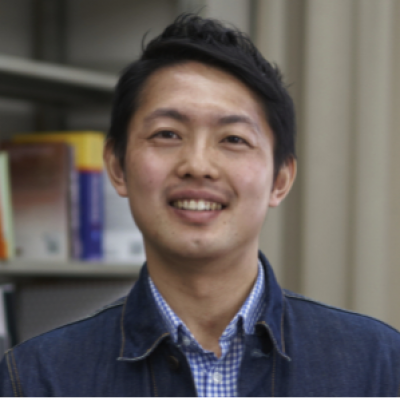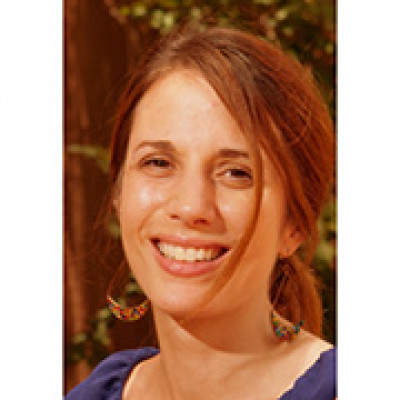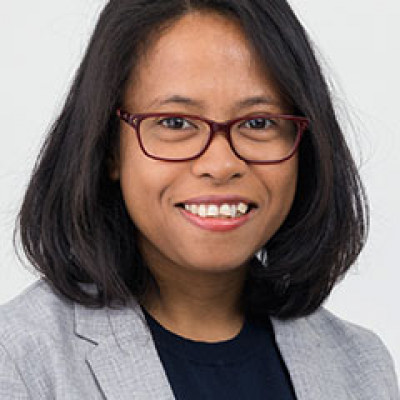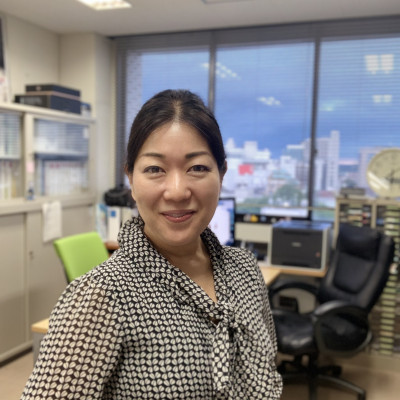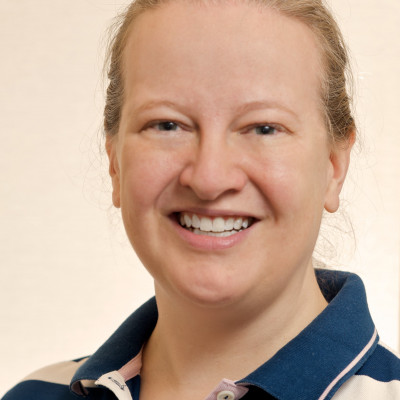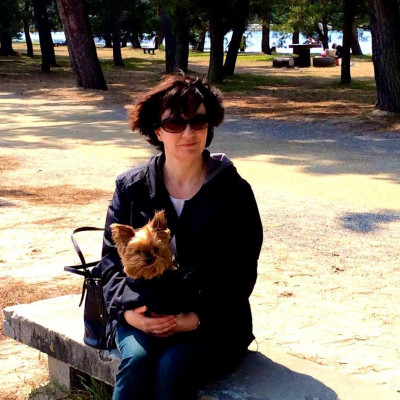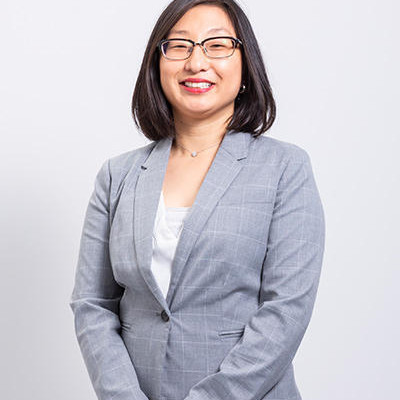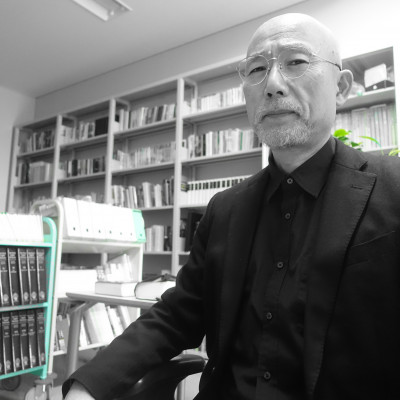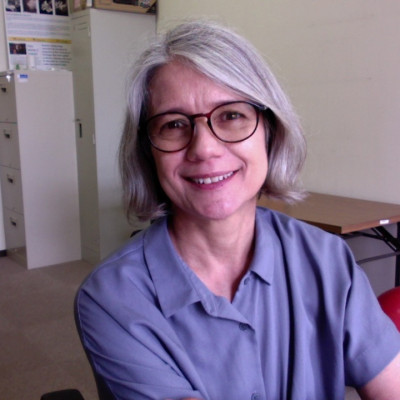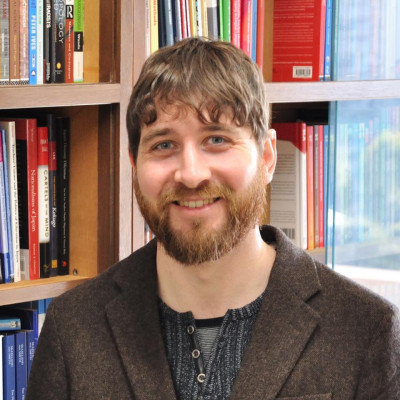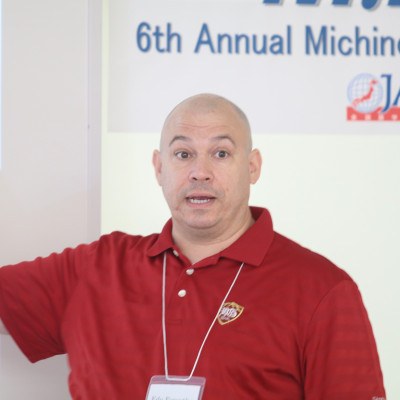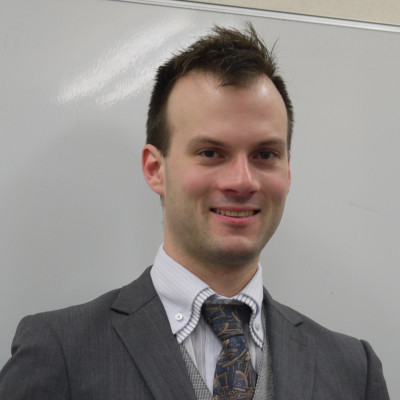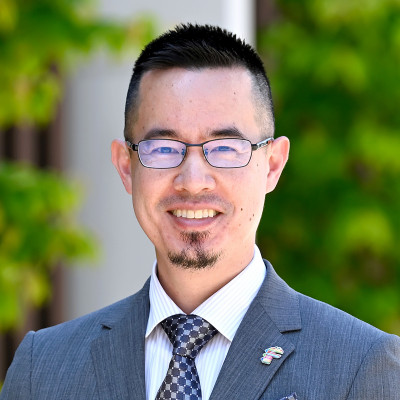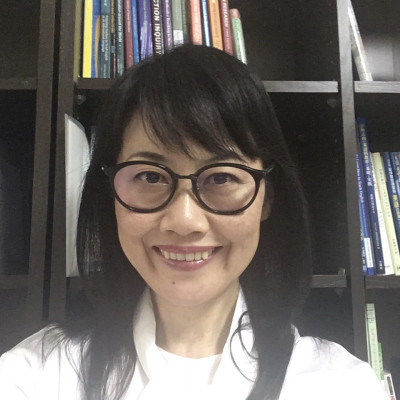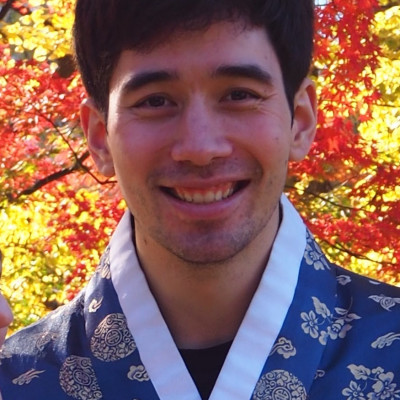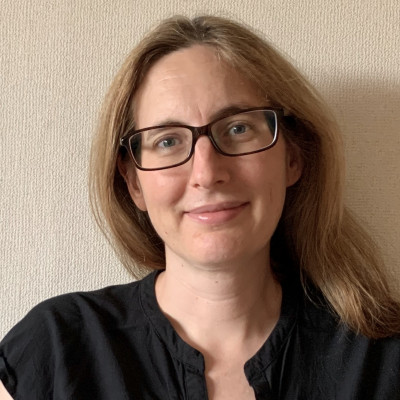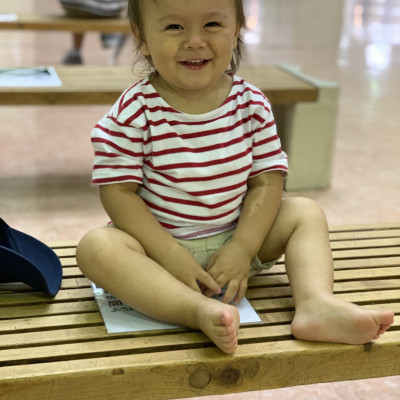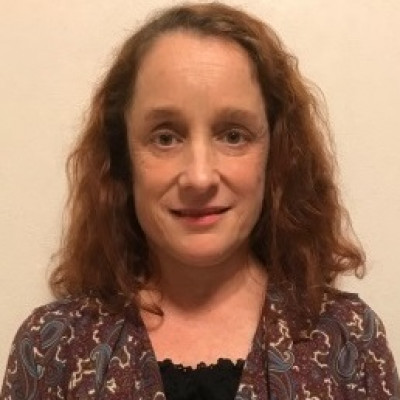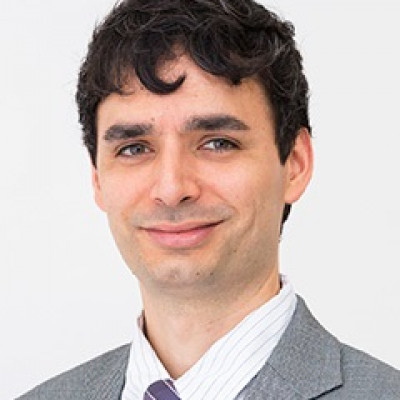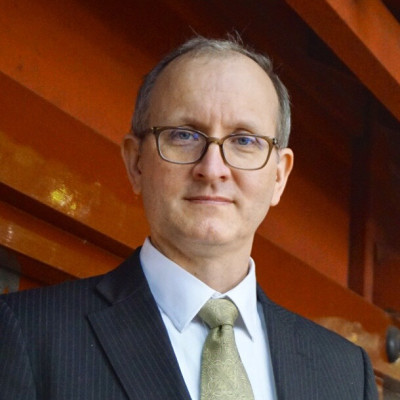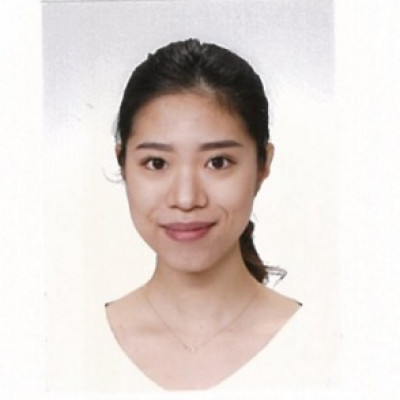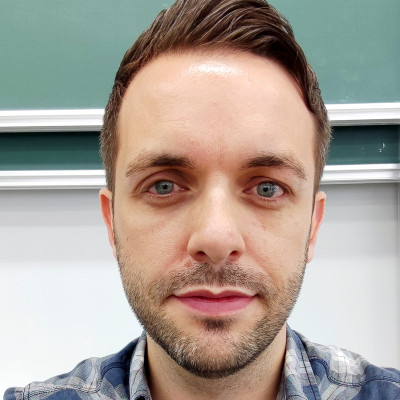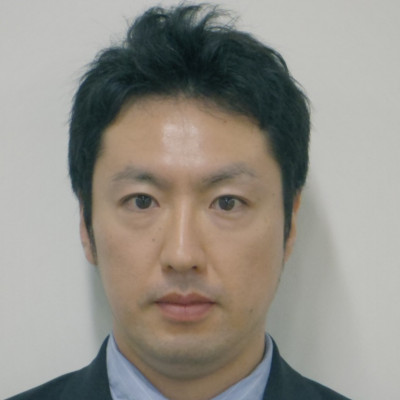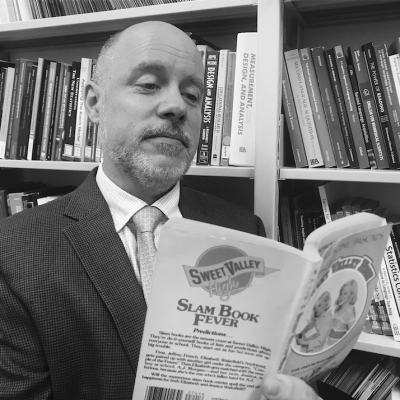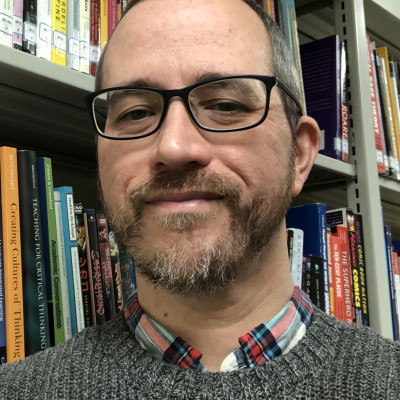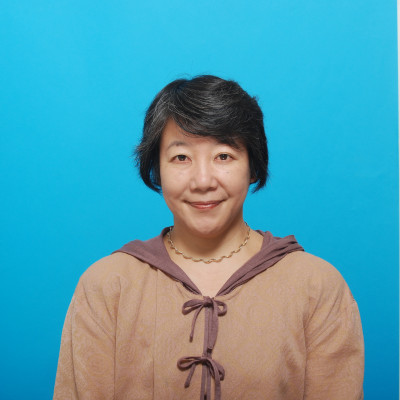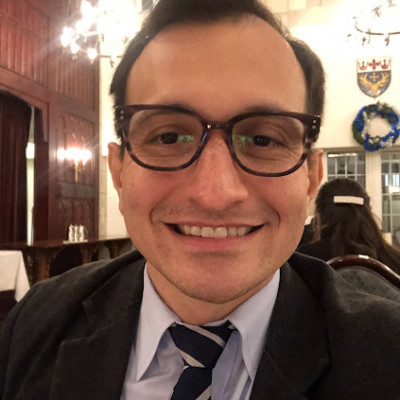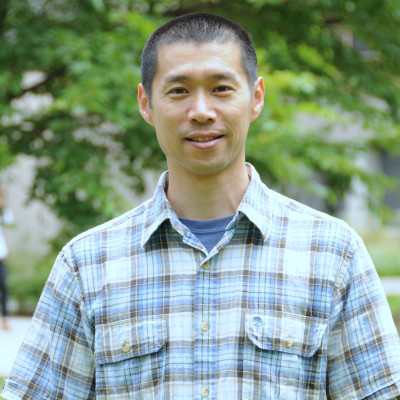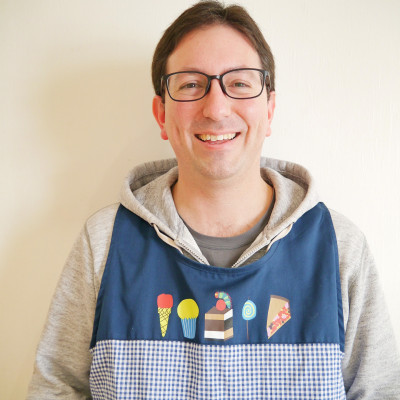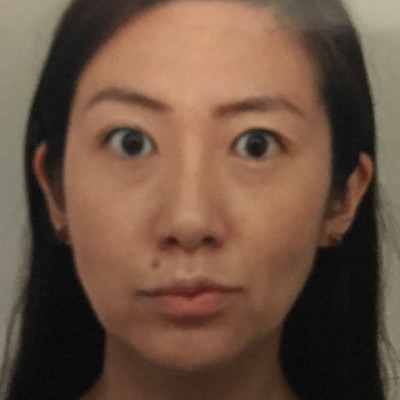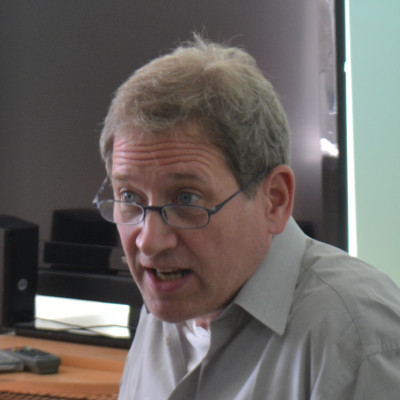Schedule Go Compact (displays all)
You can use Quick Lookup to quickly find sessions. But best is to use the LIVE SCHEDULE during the conference itself.
Please note
You didn't select any categories, so the first 120 from today are displayed. You may want to select a particular day or category if you want to ensure all (including untimed) are displayed.
PanSIG Meeting #1921
Final committee meeting to prepare for PanSIG2022
Auditorium Test #3294
You can test the Zoom link for the Auditorium here. (The Auditorium camera is not switched on yet!)
A31 Test #3295
You can test the Zoom link for A31 here. (The room camera is not switched on yet!)
E21 Test #3296
You can test the Zoom link for E21 here. (The room camera is not switched on yet)
F21 Test #3297
You can test the Zoom link for F21 here. (The room camera is not switched on yet)
C11 Test #3300
You can test the Zoom link for C11 here. (The room camera is not switched on yet)
Online Test #3301
You can test the Zoom link for online sessions here.
Online hybrid session workshop #3257
A workshop for hosts and presenters at online and hybrid sessions at PanSIG2022
F32 Test #3298
You can test the Zoom link for F32 here. (The room camera is not switched on yet)
Online lounge #3293
Meet online participants and some of the conference team.
Ainu Language Learning Through Synchronous and Asynchronous Online Methods #2845
While UNESCO classified the Ainu language as critically endangered in 2009, stakeholders continue to engage in preservation and revival efforts in a variety of capacities. This presentation will focus on an Ainu language class developed in March 2021, amidst the COVID-19 pandemic, adopting a new hybrid style of language learning. The weekly 90-minute class held on Zoom utilizes a long-standing community-based method for adult Māori language learning called Te Ataarangi combined with modern online initiatives. The language teachers and tutors also update self-access revision and study materials weekly on the associated Moodle LMS. The class participants (n=30) include both Ainu and non-Ainu, varying nationalities, young Ainu language and culture apprentices, shopkeepers, school teachers, university professors, university students, museum staff at Upopoy (the Symbolic Space for Ethnic Harmony in Shiraoi, Hokkaido) and other participants dedicated to Ainu language revitalization. The presenters will share the background and methods of the course and highlight the advantages and disadvantages of using Zoom as the main online synchronous learning tool. Functionality of the asynchronous tool, Moodle, will also be detailed, ending with a discussion of future plans for the development of the classes and online platforms.
Using lending history to recommend books for extensive reading #2849
When purchasing new graded readers for a university library, as well as making a varied collection, it is important to consider whether the books will be “popular” or “highly rated” by the students who use the library. The factors that make a book popular may be different for books that are intended to improve English skills. Therefore, using the lending history of books held by a university library, we analyze the factors that make a book popular and derive the criteria for predicting popularity in graded readers. By using these criteria, we can predict the popularity of the books we plan to purchase and so purchase the graded readers most likely to meet the needs of the library’s users. In this study, we use data extracted from an online system which stores the lending history and evaluations of graded readers in a university library, to identify the most popular graded readers and the factors related to their popularity. On the basis of these factors, we estimate an order of priority by performing statistical analysis in order to determine whether the books which the library is planning to purchase will meet the specific needs of the readers who use the library.
Benefits of using Language Learning Histories (LLHs) in teacher training #2975
Successful language learners need to learn beyond the classroom (Richards, 2015). These contexts enable learners to develop and exert their learner autonomy, as they decide what and how to learn. This presentation focuses on experiences with two Malagasy student teachers co-authoring a paper in which they tell their English language learning histories (LLH) beyond the classroom. Beyond the classroom, every learner has their own ways of learning, which may depend on their learning contexts and their motivation and interests. Through writing LLH, the student teachers realized how their interests constantly triggered their motivation to create opportunities to learn outside the classroom, a context where support is scarce. They also became aware of the disconnection between in-class and out-of-class learning content. These experiences helped them reflect on their future practice and how they would like to implement classes. Through the process of writing experiential narratives in the paper, we were able to make some significant insights on the potential benefits of the use of LLH in language learning and teacher training. Accordingly, participants will leave the presentation with a deeper understanding of learner experience and autonomy that can help them in developing practices to facilitate language learning beyond the classroom.
Difficulty estimation method for extensive reading of general english books #2848
Extensive reading (ER) entails starting with simple books (graded readers) and gradually expanding the range of reading to include progressively more difficult books. In Japan, ER programmes often make use of “Yomiyasusa Level” (YL), which indicates a book’s difficulty performed by the subjectivity of Japanese people who have already done a lot of ER. One of the principles of ER is that learners should use the YL scale to choose books at an appropriate reading level. Even after learners have progressed from graded readers, they will still benefit from being able to choose books on the basis of YL, but relatively few non-graded readers appear in YL databases. The goal of this research is to estimate the YL of general English books to which a YL has not yet been assigned. This will also be useful for determining the YL scores of new graded readers and for checking the validity of previously assigned YL. First, we examine the parameters which contribute to YL using a corpus tool called Coh-Metrix, which quantitatively evaluates the linguistic characteristics of a text. Then, we perform a regression analysis using these parameters and estimate the YL of general English books.
Reverse Engineered: Modeling cross-cultural pragmatics with TOEFL iBT tasks #2853
The TOEFL iBT test is designed to measure the likelihood of academic success in English-medium universities attended by non-native English speakers. In order to do well on the test, an understanding of academic vocabulary is important, but so too is a grasp of non-academic vocabulary that is useful in student life. This “college knowledge” is tested in the listening and speaking sections of the TOEFL iBT. Test-takers are asked to demonstrate their understanding of conversations between students and professors, students and university staff such as a librarian, registrar, or academic advisor, and conversations among students. By utilizing TOEFL iBT practice materials and their accompanying scripts, these texts can be reverse engineered to model , instruct, and improve our students’ lexical and cross-cultural pragmatic awareness. This workshop will demonstrate how materials can be exploited to build up useful vocabulary for study abroad (dorm, GPA, transcript, etc.), improve situational awareness through reading, listening, and role-play, and ultimately build up students’ confidence so that they have a degree of “college knowledge” before they set foot on a campus far from home.
Comparing the online and paper-based versions of the TOEIC L&R #2893
Shōzan University (a pseudonym) uses the Computerized Assessment System for English Communication (CASEC) for placement. Students complete the CASEC at home in late March, then the TOEIC Listening & Reading (L&R) a few weeks later once classes have begun. Two cohorts, 2018 and 2019, completed a paper-based version of the TOEIC L&R; however, two cohorts, 2020 and 2021, completed a novel online version of the TOEIC L&R, which reportedly results in similar scores as the conventional paper-based TOEIC L&R (IIBC, 2020). Author (2020) revealed that all cohorts had similar CASEC scores; however, TOEIC L&R scores from the online version were significantly higher than from the paper-based test. Author (2020) also reported on a sub-group (n = 57) who completed both versions of the TOEIC L&R, with online test scores being significantly higher than the conventional paper-based scores. However, the former was completed without proctors. The current presentation will report on a study from February 2022. Participants (n = 80) will complete the two different versions of the TOEIC L&R with participants randomly assigned to two groups (i.e., paper-online or online-paper). Both groups will complete both tests under supervision.
Automatic question generation for an extensive reading placement test #2850
When practiced correctly, Extensive Reading (ER) should enable learners to become more proficient users of a foreign language. The method is only effective, however, if learners read books of an appropriate level, i.e. books which they can enjoy reading without needing to consult a dictionary. Therefore, the Extensive Reading Foundation Placement Test (ERFPT) was developed to measure the reading level of learners. The test employs comprehension questions which have been created by teachers who have volunteered their time to help develop the test. More texts and test items will improve the test; therefore, we propose a system that automatically generates questions and so reduces the burden on those making the test items. The question generation method is based on the way that the test item maker actually creates questions for the ERFPT, in other words through a process of ‘abstraction’. We use a summary created by PEGASAS, which is a transformer model for abstractive text summarization. This presentation will investigate the suitability of this method for generating questions for ERFPT. If successful this method may be used for creation of a variety of comprehension tests beyond ER.
Developing an in-house corpus and high-frequency word list for science majors #2854
This reports on a work-in-progress of the development of an in-house corpus and high-frequency word list of the corpus for a Science and Engineering university in Japan. Students read scientific articles as part of their required English courses. However, in an informal survey, while some students were positive about the prospects of reading specialized academic articles in English, others felt that it would be too challenging. In order to bridge the difficulty gap, an in-house corpus of articles recommended by the science faculty and a high-frequency word list of the corpus are being developed. Interviews and surveys will be conducted with selected members of the science department to understand the nature of articles written in English that these members would recommend for graduate students. The articles will be gathered to create a corpus of one million words, and processed for high-frequency words using AntConc (Version 4.0.2) (Anthony, 2021) a free online vocabulary profiling software. These will be compared against the new academic word list and further analysed for specialized words. The findings will help to construct an informative vocabulary list for the students in graduate school, and in the future, this could be further refined for undergraduate students.
Building Zettelkastens for SLA research and the classroom #2912
In this presentation, classroom applications of the Zettelkasten method will be explored. A Zettelkasten is a personal knowledge management system in which notes are created and assigned to ad hoc categories as they emerge. By creating note slips, either in digital or analog form and subsequently creating links among them, a framework of knowledge can be replicated. By relating ideas to each other, students replicate a train of thought. Zettelkastens provide a place to store and, more importantly, organize knowledge, thereby increasing the quality and quantity of learning. Though this system was first used to develop research ideas, it also has applications in the foreign language classroom to serve as a framework in which the learners organize and consolidate what they have learned. In this talk, the presenter will first provide an overview of the literature on Zettelkastens and then demonstrate how to implement this system and apply it to research and, more importantly, the classroom. Finally, learners’ subjective feedback on the effectiveness of this classroom practice will be addressed.
Online Lounge #3289
Meet online participants and prepare for the day.
Opening Ceremony #3290
Welcome to PanSIG2022!
The Well-Balanced Individual: A Challenge for Educators #3120
On an individual level, a key purpose of education is to bring forth the latent abilities that exist in each person. On a societal level, a primary purpose is to contribute to the emergence of an ever-advancing civilization. These purposes are intimately related and can be achieved when individuals act on the basis of an evolving set of knowledge and skills that has practical and beneficial applications, positive emotional health, an ethical foundation in which the welfare of others is important, and an ability to think creatively. Although foreign language teachers are primarily responsible for supporting their students in their efforts to perform the challenging task of acquiring an additional language, foreign language classrooms can--and arguably should--be the site of more diverse types of learning that help learners develop their innate abilities in ways that touch on four aspects of what it means to be human: cognition, affect, ethics, and creativity. These four overlapping aspects can be embedded in language-learning tasks in ways that can potentially lead to cognitive development, the healthy expression of emotion, ethical thinking, and new and interesting angles on ideas and ways of acting in the world.
F33 Test #3299
You can test the Zoom link for F33 here. (The room camera is not switched on yet)
The Teaching of LOTE in a Japanese High School #2827
In Japan, English is the dominant foreign language taught in classrooms and a limited number of high schools provide languages other than English (LOTE) (MEXT, 1996, Okabe, 2002). However, teaching LOTE is said to be beneficial for developing open-minded behavior towards those of different cultures and backgrounds, and improving metalinguistic competence such as expressing oneself and understanding others (Psychol, 1999).
The target organization hosts a program called “Languages of the World” in a newly established high school, which focuses on LOTE. In this course, all first-year students learn five languages: Chinese, Korean, French, German, and Spanish, each taking eight class hours. Not only do the syllabus and materials used in this program focus on language knowledge, such as grammar and pronunciation, they also touches on the cultures of the areas where the languages are spoken. While there were challenges, such as a lack of familiarity with LOTE, and much to be improved in this first-time program, the initiative had several meaningful and productive outcomes for the students. A survey sent out to students after the completion of the school year revealed that many experienced personal growth in cultural understanding.
Teacher Trainees' Opinions of the Viability of TBLT in Japanese High School #2841
This action research study focused on teacher trainees and their beliefs about the potential of TBLT in their future teaching situations. The participants were fourth-year undergraduate students enrolled in the Teacher Education Program at a private university in Japan. As part of their seminar work, the students read a series of articles describing the process of implementing TBLT. They also read articles describing relevant research studies focusing on TBLT. After seven weeks of lessons with each lesson focusing on a different article, the teacher trainees participated in a TBLT lesson as students. Their assignment for this portion of the seminar was to share their thoughts, specifically TBLT’s viability for their future teaching context. The data were collected through the use of a questionnaire with open-ended questions. Each question represents a research question for this study. The research questions elicited the teacher trainees’ opinions on the following issues: TBLT’s viability within the Japanese context; TBLT’s viability for low-level learners; weaknesses and strengths of TBLT; possible approaches for incorporating TBLT into English classes; TBLT and student motivation; and whether they plan to use TBLT in the future. The results indicated the trainees were mostly concerned with TBLT’s viability for low level learners.
Teaching Self-study: Ideas to improve Self-study Habits #2843
The presenter will share ideas for guiding students from ‘I don’t know what to do’ to ‘now I know what to do’. The ideas include: setting goals, mental preparation for daily self-study activities, Learning Cycle, and note-taking strategies. English as it is taught in classrooms often focuses on testing students rather than on having them acquire learning skills. Learning strategies should be taught explicitly to enable our students to acquire learning skills. Learning Cycle, Active Recall, and study habits are three theoretical paradigms the presenter encountered in recent years. Learning takes place when students have opportunities to repeat the content. One effective strategy is using the Learning Cycle. The famous Feynman Learning Technique is one of the variations of the Learning Cycle. Active Recall can be used in connection with the Learning Cycle. Simply said, Active Recall is an act of self-questioning. By using Learning Cycle with Active Recall, the content can be repeatedly reviewed by students. Next, the presenter will share his collection of note-taking styles including some unique note-taking styles. At the end of the presentation, the results of the presenter’s own action research in this area will be shared.
Setting up a successful COIL project #2858
Collaborative Online International Learning (COIL) partnerships provide faculty members with opportunities to collaborate with colleagues at institutions in different countries, and allow students to learn in a globally networked classroom in the form of virtual mobility. A COIL project begins with finding a teaching partner at a university in another country, and then together developing a six- to-eight week learning experience for both their classes in which all students learn, exchange, and interact with each other without ever leaving their own country. The thought of developing and embedding a successful international online learning experience with students and the professors themselves at different institutions may sound exciting, but it can also be very overwhelming. With so many variables at play - technological access, language differences, time zones, and cultural and pedagogical differences - faculty may not know where or how to begin. The two presenters, professors from Canada and Japan, will share about their experience collaborating on a COIL project for their students, who were in different majors and had different levels of English. Topics will include initiating a partnership, setting feasible goals and objectives together, and troubleshooting when best-laid plans do not always work out.
Language Learning COILs: A Pilot Study #2865
Collaborative Online International Learning (COIL) and Language Learning COILs (LLCs) provide opportunities for students to communicate with students from other countries learning the same L2, to communicate with native speakers of the L2, and to develop cultural awareness and understanding. The COVID-19 pandemic has hastened awareness and understanding of how important and useful COIL might be in education. This presentation will report on the outcomes of a LLC held in the fall of 2021 between a English Communication class for first year Japanese university students and a 2nd year Japanese language class at a college in the United States. After a brief outline of the LLC’s content and procedure, I will review the results of a post-LCC questionnaire given to the Japanese students. Results of this pilot study show that students had positive responses to the LCC, and indicated increases in motivation to study abroad, awareness of cultural differences between Japanese and American university students, and participation in regular English classes. The data related to perceived language ability and confidence in using the language is inconclusive and merits further investigation. This presentation might be of interest to any instructor interested in Language Learning COILs.
Exploring systematicity of spatial phrasal verb constructions for L2 learners of English #2874
This ongoing study investigates the systematicity and teachability of difficult spatial phrasal verb constructions (PVCs) for second language (L2) learners of English. Cognitive semantic research (e.g., Evans & Tyler, 2005; Mahpeykar, 2014; Shintani, Mori & Ohmori, 2016; Bong, 2019; Tyler, Jan, Mahpeykar, & Tullock, 2020) indicates that systematicity and teachability of PVCs have been a long-term focus of language teachers and applied linguistics, and continues to be of particular interest. For this current study, 41 1st-year university students in an English program in Japan completed a survey eliciting a range of difficult PVC usages. Analysis of the data reveals that correlations of participants’ first language (L1), linguistic complexity, PVC difficulty, prototypical and polysemous categorical properties demonstrate systematic features that can influence the teachability of English PVCs for L2 learners of English. The implications of this research on the systematicity of spatial PVCs could lead to enhanced teachability and thus may have an effect on L2 pedagogical practices.
A quantitative exploration of teacher demotivation in eikaiwa #2879
Teacher demotivation negatively affects the well-being of educators and can increase teacher burnout and turnover intention. Factors contributing to teacher demotivation include a lack of autonomy, interpersonal difficulties in the workplace, inadequate training, and few chances for career progression. In the eikaiwa context, few studies have directly explored teacher demotivation. Taylor (2017, 2019) qualitatively demonstrated demotivation among teachers from both large eikaiwa chains and independent schools alike, yet the depth and scope of the phenomenon within the industry remains unclear. In order to fill this gap, a 32-item Likert scale questionnaire exploring autonomy, training, career progression, interpersonal relationships with colleagues and managers, and turnover intention was developed and distributed online between December 2021 and February 2022. Results from 89 respondents were collected and analyzed. It was found that teachers were most demotivated by limited career progression, lack of training opportunities, and reduced autonomy. They were least demotivated by interpersonal relationships with colleagues. The presenter will consider these results in relation to demographic factors such as gender and school type. Implications for eikaiwa educators will also be discussed.
(Re) Imagining literature in language education #2653
The goal of content-based instruction (CBI) is to teach the subject—not the language—with the goal of providing genuine topics that interest and motivate the student beyond what many sterile language textbooks achieve. Literature is a creative product aimed at stimulating interest, so as a CBI subject it perhaps has the greatest potential to engage EFL students. Literature ranges from six-word memoirs, to comic books, to lengthy novels: it's creativity knows no bounds. As literature is a creative product, so too are the methods for using literature in language education. This forum mimics the theme of the conference : (Re) Imagining Language Education. How do you use literature to engage your students?
In this LiLT forum, we would like to address this topic. Presenters will share their experiences in how they use literature in their classroom.
Integral to the forum's success is audience participation; questions and insights will be solicited and greatly appreciated. Non-members and LiLT members alike are encouraged to attend and enrich our friendly and inclusive forum.
From Burnout to Burning Rubber #2657
The pandemic introduced numerous challenges to our personal and professional lives as teachers. We may have felt an adrenaline rush in the early days as we had to rally all our personal and collective resources in transitioning to online teaching. But, as the pandemic dragged on, many of us felt the fatigue of having to pivot from F2F to hybrid to fully online teaching at the drop of a dime. The extra energy needed to help students cope with learning through different modes also drained our internal resources. This forum will focus on the strategies that teachers at various levels of education—from K12 to university and language schools and beyond—have replenished their stores of energy and enthusiasm.
Perspectives on how to support learners with special educational needs #2710
While accommodation for students with special educational needs (SEN) is built into mainstream education and teacher training courses, and considerable research has been carried out regarding SEN students' language learning, much less attention is given to the professional development of language teachers who seek to provide inclusive and adaptive learning environments for SEN students. This presentation reports on a case study carried out among five instructors who taught students with SEN in an academic discussion course at a Japanese university. These teachers were considered representative of university-level language teaching practitioners in terms of qualifications, experience, and teacher education, including a lack of official training regarding working with SEN learners. The study used reflexive writing by the teachers to uncover a set of developing perspectives on, and diverse approaches to, supporting SEN students. The results reveal two areas that are potentially instructive for both teachers and academic managers of professional development programs. First, they give some insight into the extent to which pre-service training programs are currently preparing teachers to help learners with special educational needs. Second, they outline a variety of ways in which teachers can proactively adjust their practice in order to better create equitable and inclusive classrooms.
Corpus Linguistics: What is it and what can it do for you? #2968
Corpus Linguistics (CL) is a data driven methodology where frequency data is an important source for teachers and learners (Friginal, 2018). CL is mainly used at the level of institutions, publishers, editors, materials writers, researchers, and other specialists. (Bolton, 2010). This is a process and language that is very specialized and dense and is not intended for the language learner / average teacher. It takes a lot of investment in order to come to understand CL, like any technical subject. CL does have a lot of upsides such as making materials more authentic and developing learner autonomy. This presentation will cover some practical examples of what can be done in terms of pedagogical application such as tasks done by students or simply techniques to improve your own teaching. Having different tools and a variety of them can help teachers who have no experience get a good start using CL in the classroom.
The Unheard Voice in Materials Development #2971
The learning materials or textbook used in the classroom is a core component of language learning in the EFL industry. However, the material is often designed by teams of materials writers, located far away and completely faceless from the students' perspective. Additionally, multiple researchers in the field (McGrath, 2013; Tomlinson and Masuhara, 2018) have identified one pitfall of materials development and textbooks as the lack of a meaningful feedback loop from learners, what we refer to as ‘the unheard voice.’ This presentation will report on a survey carried out by the presenters to give students a voice by listening to their attitudes towards the materials used in class. Some of the main areas covered include the level of interest or enjoyment towards the current textbooks/materials used in class, problems that they perceive in current materials, the type of materials that students would like to use, the preferred modality of learning material delivery (such as traditional pen and paper, group work, video, and online quizzes). In addition, the survey went deeper by encouraging students to think more critically by asking them to consider designing their own materials and the content and format of these materials.
Exploring the benefits and challenges of using humor in online teaching #2735
Humor can be a vital component of the language teacher’s repertoire, especially considering its positive impact on classroom atmosphere and student participation (Reddington & Waring, 2015). Unfortunately, instructors had to drastically rethink their approach to incorporating humor with the sudden shift to online instruction. Would students still appreciate or even recognize humor use with lessons being taught via online video conferencing?
In order to gain a better understanding of the role of humor in synchronous online teaching, the presenters undertook a mixed methods study, administering a survey to university English language teachers (N = 60) and conducting follow-up interviews with select participants. The Likert-scale items in the survey covered variables such as the benefits, challenges, and approaches to using humor in online teaching. Additionally, open-ended survey items queried teachers about topics such as comparing the use of humor in online and F2F lessons and solutions to the limitations of online teaching. Responses indicate vast differences in opinion, with some participants lamenting the obstacles to incorporating humor into their lessons while others enthused over the unexpected possibilities offered by the novelty of this new teaching environment.
After reviewing the survey results, the presenters will share expanded insights from the follow-up interviews.
Paper to pixels: A decade of EFL journal development #2829
Journal writing is a recognized and much-used tool in language teaching. In the language teaching classroom, it can address multiple needs: target language habituation, student interaction in the target language, provision of authentic materials, facilitation of both peer and instructor review, multimedia communication, multiple study skill integrations, enhancing student motivation, and many more. Journaling has been a component of the first-year courses I teach for over a decade and has been developed and refined through several iterations. This presentation has three distinct foci. First is the succinct elaboration of the language teaching needs the journaling program seeks to meet, followed by a description of the development of this program over time and the reasons why that development was necessary. Finally, there is a practical demonstration of the various modes, methods, and tools in the current OneNote-based journaling system, illustrating how it can be used, and be useful, for both students and educators.
High-frequency multi-word sequences and learners’ speech rate and listening #2830
The automation of multi-word sequences (MWSs) reduces the cognitive load required for fluent speech (Wood, 2010). However, this poses challenges for L2 learners because considerable phonological reduction occurs in high-frequency MWSs (Bybee, 2002). This study looks at whether attending to reductions during focused listening and speaking practice of the highest-frequency MWSs could help improve students’ spoken fluency and listening perception (accuracy). Over the course of 10 weeks, both a control group (N=17) and an experimental group (N=16) of Japanese L1 English language users studied 10 common bigram collocations each week, while the experimental group additionally studied sets of 10 phonologically reduced high-frequency trigrams. Both groups also described three picture stories that contained the target collocations in class and completed focused listening homework each week. Participants were tested for 1) gains in spoken fluency through both a free speaking and storytelling task and 2) ability to accurately complete a dictation listening task containing target MWSs. This presentation will discuss the study and results, which found a large advantage for the experimental group in spoken storytelling fluency but no statistically significant difference in free speaking fluency and listening perception.
Cooperative board games for developing turn-taking in EFL discussions #2835
Effective turn-taking is vital for successful participation in group discussions. In Japanese EFL contexts, group discussion often exhibits turn-taking behavior that is markedly different from that of competent English speakers, often limited to each participant making a short speech and brief comments of agreement or disagreement. Turn-taking behavior is also a major component of the interaction in cooperative board games, which encourage group decision-making and often exhibit more varied forms of turn-taking. This presentation describes the use of cooperative board gameplay in the classroom as a training aid to develop learners' turn-taking skills. First, the presenter will explain the characteristics of cooperative board games from a TBLT perspective, including the range of speech acts contained within their gameplay. Then an analysis of student transcripts collected over one semester will be presented to illustrate changes in student turn-taking behavior in a variety of contexts. The changes explored include differences in turn lengths, speech act use, and turn-taking patterns of learners. The presentation will conclude with some suggestions for using cooperative board games in the language classroom to maximize language use.
Filling Gaps in the English Curriculum with Self-Access Learning Initiatives #2838
Classroom-based language curricula are necessarily “one size fits all”, leading to potential gaps which self-access language learning can address through resources suited to individual learning goals. Moreover, centres can become social communities in which users learn from each other (Mynard, 2019). Through dialogue with learners and faculty, gaps in the English curriculum were identified and initiatives developed within our tight budgetary constraints. The questions that guided the development of our self-access centre were: 1. Why do many CEFR (pre-)A1 level learners rarely visit the teacher-run conversation lounge and what can be done to encourage their participation? 2. How can value be added for bicultural and “returnee” learners who are not well-served by required English classes? 3. What can be done to support the 10-15% of students in the English Department who choose to write their graduation thesis in English, considering their numbers are judged insufficient for a dedicated advanced academic writing class? Details will be provided of ongoing initiatives to encourage participation of lower-level students, involve bicultural and returnee students as active stakeholders, and provide writing support without a writing centre. In addition, presenters will invite ideas from the audience to address these common issues through autonomous learning.
Cancelled Can asynchronous formats be used to develop discussion skills? #2852
With the emergence of the coronavirus pandemic, there was a need in many educational contexts to adapt materials and courses originally intended for face-to-face delivery to online platforms in a limited timeframe. This less-than-ideal scenario led to many educators implementing alternative methods for teaching core spoken-language competencies, such as presentation and discussion skills. However, such rapidly implemented adaptations raised numerous questions as to the efficacy of online, asynchronous formats to facilitate the development of spoken-language skills. Thus, this presentation examines the effectiveness of two asynchronous platforms: (1) written discussion-forums, and (2) an audio-visual platform, VoiceThread. These were adopted to assist in the development of discussion skills among intermediate learners at a Japanese university. Examples of the discussion skills that are the focus of this study include agreeing, disagreeing, and negotiating meaning. Based on a qualitative analysis of the transcripts of both formats, the presentation discusses the relative merits of each platform by comparing the discussion skills used. Overall, the findings indicate that VoiceThread is the more effective platform for developing spoken-language skills, but that the discussion forums allow an easy-to-implement, if limited, alternative. Implications for the use of these platforms as part of a discussion skills course will be discussed.
Transforming rudimentary tasks through the use of authentic materials #2868
One of the most vital, yet challenging tasks of a language instructor is to create activities that offer a variety of real-world applications to help prepare students for life beyond their studies. Standard curricula, textbooks, and high-stakes tests are often rigid, with little room for creativity and relevant learning experiences. An increasing number of studies show that scaffolding authentic materials provides countless linguistic benefits, such as improved communicative competence (Berardo, 2006; Mishan, 2005), listening comprehension (Otte, 2006), exposure to unstructured language (Rogers & Medley, 1988), and non-linguistic advantages, such as motivation (Nuttall,1996) and enhanced cultural understanding (Little et al., 1989). This session will begin with an overview of the academic discussion revolving around the use of authentic materials in a foreign language classroom. Following this, the presenter will explore guidelines to consider when selecting authentic materials, and some simple, yet effective strategies for integration. In closing, the presenter will share some practical tasks that they have implemented in their Japanese university classes and offer insight into how it has impacted their students. The session will revolve around this question: How can educators exploit authentic materials to close the gap between the real world and the classroom environment?
Cancelled Teacher satisfaction during the COVID-19 pandemic #2873
Since March 2020, the COVID-19 pandemic and resulting emergency measures such as campus closures and sudden shifts to online learning have had numerous effects on how teachers perform their jobs, in particular challenges such as adapting to changes in social interaction and technology (Miller, Parrish, 2021). This study will present data from a survey of 202 Japan-based university instructors using Likert-scale items, open-ended items, and interview data collected at the end of the 2020/2021 academic year. The survey was part of a larger quantitative and qualitative cross-sectional study investigating teacher job satisfaction in Japan. The survey questions relate to overall job satisfaction before and during the pandemic and what aspects of the experience were positive or negative. Survey results indicated several areas of concern, such as isolation, anxiety, and frustration with technology, as well as suggested possible methods to cope with unexpected change and disruption in the education industry, through adaptive use of technology, continuous training, and accessing social networks. Participants will receive practical suggestions for improving their professional development drawn from the survey and the author's personal experience.
Teacher Perceptions of ADHD and ASD in the Japanese EFL Classroom #2698
Autism spectrum disorder (ASD) and attention-deficit/hyperactivity disorder (ADHD) are two frequently diagnosed learning differences which can seriously influence students’ L2 development. Although Japan has diagnosis rates comparable to other developed countries (NISE, 2016), teachers often lack training for these conditions. This is particularly true for EFL instructors, who are not necessarily trained or informed of learning differences. In Japan, reporting and communication of these conditions is generally scarce, yet MEXT maintains a policy of inclusion at all levels of education. Therefore, a clearer picture of the challenges facing EFL teachers is one step toward ensuring classroom praxis can meet the promise of inclusivity. A survey of EFL teachers in Japan was conducted to better understand issues around learning differences as ADHD and ASD in their classroom. The survey had three goals: to chart themes in EFL teachers’ perceptions of learners with ADHD and ASD; to chart adequacy of EFL teachers’ knowledge and training for learning differences; and to identify potential areas of need for better understanding how to make the EFL classroom more accessible. This presentation will present the results of the survey and a set of practical takeaways which EFL teachers might consider in furnishing accessibility in the classroom.
Developing a system for student self-evaluation in speaking classes #2717
A common classroom challenge is evaluating student oral production, particularly in classrooms where students speak in small groups as limitations of teacher and classroom lesson time make providing individualized feedback impractical. In this practically-oriented presentation, the presenters introduce a system developed to make lessons more student-centered, promote learner autonomy, and facilitate student reflection. The system enables students to self-evaluate their speaking through recording and transcribing their oral production using freely available online tools. The presenters describe the development process for the self-evaluation rubric. The rubric went through multiple iterations from one originally intended for teachers, which was unwieldy for students to use, to a simpler, more focused student-friendly rubric. As a result of this change to the class system, students could self-evaluate their production and solicit individualized feedback from instructors concerning self-selected topics of interest. The presenters also share student reflections and feedback. Specifically, students observed that focused self-assessment helped them better understand and implement the conversation strategies featured in the class textbook. As these techniques are compatible with online and face-to-face instruction, attendees will gain an understanding of how to implement similar strategies in their teaching without relying on the online technologies used.
Practical Lessons from Materials Development #2976
In order to support materials development in EFL teaching in Japan, there is a need for sharing of expertise and practical experience. This can potentially be achieved through workshops which bring experienced developers together with teachers who have the interest or need to create materials. This workshop will begin in the form of a structured dialogue between two materials developers, one with 25 years experience and the other much newer to the field. Developing materials for language learning is fundamentally a practical process, and through the presenters’ guidance and offering different perspectives, they will share lessons learned in the trenches of materials development. Some topics covered are the use of linguistic and practical frameworks, utilizing skills and knowledge that you already have, finding your own working style, identifying your learners' language needs, working with different activity types, using deadlines effectively, and balancing your own interests with the needs and interests of the learners. For each topic, workshop participants will use these lessons and tips in groups as a stimulus to think about and develop learning materials for their own teaching context.
Further Reflections on the Effects of Free Writing in an EFL Writing Class #2724
Japanese university students are often required to perform free writing activities in their English language classes in an attempt to encourage confidence in writing in English. Free writing activities are defined as “the act of writing quickly for a set time from ten to fifteen minutes, just putting down whatever is in the mind, without pausing and worrying about what words to use, and without going back to modify what has been written” (Li, 2007, p. 42). The authors have had their students do free writing activities throughout two years of English composition courses and analyzed the quantitative effects of such activities. In this presentation, the authors will explain the free writing activity tasks used, then provide quantitative data to show results in terms of the number of words written, and finally representative qualitative examples from the students’ reflection on their free writing experiences. This presentation will be an extension of the data presented at JALT2021. Attendees will come away with ideas for how to more effectively employ free writing in their university English language classes in a manner that will align with students’ ideas on free writing for self-improvement.
Masks’ impact on listening communication in the L2 context #2736
Since the start of the COVID-19 pandemic, the wearing of face masks during all interpersonal contact has become our “new normal.” Though an indispensable part of our daily outings, it is indisputable that masks impede verbal communication by both muffling speech sounds and blocking visual cues (e.g., facial expressions, emotional information) from view. While this impediment might only be minor for people conversing in their first language, the current study sought to investigate the impact that masked speech had on language learners’ comprehension of a second language. A sample of 192 Japanese university students were given a listening task under three conditions: masked speaker, unmasked speaker, and audio only. Results indicated that learners had significantly more difficulty comprehending the speech when viewing a masked speaker, even more so than when they were just listening to voice recording (i.e., with no accompanying picture). We will discuss with attendees current theories of speech perception and listening comprehension which may explain these findings, as well as ideas on how to counteract this effect to communicate more effectively in the classroom while masked.
CLIL and Translanguaging in EAP classrooms #2836
A class of 3rd year Japanese university EFL students (n=26) were taught a subject called “Science and Society in English” that allowed them to utilize their prior knowledge from their majors in the EFL classroom. A CLIL-based syllabus incorporating translanguaging approaches was created to support students' use of L1 and L2 materials. Themes explored in the class covered the impact of science and technology on society, and its benefits/ hindrances . Following "Bloom's Revised Taxonomy 2001" as a learning progression guide, students were provided with opportunities to read and discuss topics related to their Science and Technology majors in their L1 and L2 to prepare to write a research paper and make a final presentation in English. This presentation will outline how Blooms Revised Taxonomy, CLIL and translanguaging approaches were incorporated in the classroom throughout the 15 week semester. It will outline the observed benefits to students’ comprehension of content and the specific language it requires through bringing their prior knowledge from their majors to the forefront. Findings indicated that allowing learners L1 in the L2 classroom increased students' levels of motivation and willingness to communicate, while developing their academic writing and presentation skills.
Using Technology to Teach English Communication for Repeaters #2837
Eight students (n=8) attending a required course called English Communication at one university in Japan were taught during fall AY2020 (i.e., from September 2020) after the instructor reviewed literature from January 2017 to August 2020 on teaching EFL learners who are repeating their courses. When class began in September, the instructor started teaching 15 sessions on Zoom with each session consisting of two 90-minute sessions on Zoom, and took notes after class based on class observation after each session. Based on a synthesis of literature review and notes based on observation, it became evident that (1) a semester-long twice a week 90-minute course based on having students make answers based on open-ended questions can elicit increasingly complex responses from students whose TOEIC scores range from 295 to 345 points in the target language; and (2) having students submit reflections at the end of each class can enable teachers to understand difficulties students are facing with developing their linguistic skills and encourage students to reflect on themselves for personal development. Details of literature review, open-ended questions, and notes based on observation will be presented to help the audience think about ideas that can be applied to their own classes.
Imagining anti-oppressive GCE EFL teaching theory & practice #2861
This presentation introduces the theorizations and specific anti-oppressive classroom practices developed in the 1st year of a 3-year Japanese-government funded project. The specific theory of anti-oppressive education introduced was developed by combining anti-oppressive theory and global citizenship education (GCE) theory for EFL classroom contexts in Japan. To build the theory, Andreotti’s (2011) theorizations are combined with terminology from Sensoy and DiAngelo (2017) to explain an anti-oppressive theory and practice, which not only uncovers the complexities and fluidity of societies, but also uncovers the systemic oppression that organizes them. Foundational terminology is explained to understand systemic oppression and constitutive subjectivities (Coloma, 2008), and this theory is used to explain several anti-oppressive teaching practices which promote self-reflexivity and go beyond inclusion. Anti-oppression teaching methods are shared, drawing on personal experiences in pre-service education. As a teacher-educator, the presenter explains the important task of teaching not only content, but also the realities of complex local and global social justice issues that impact the students’ future teaching careers. In this new COVID-19 era where injustices are magnified, these anti-oppressive practices encourage educators to go back to the basics to understand their role in systemic oppression, as well as their role in dismantling it.
Cancelled Induction program for high school students: Effectiveness and implications #2885
High school students are often anxious about their new university life and do not know what to expect in English classes at the tertiary level. Furthermore, students may feel apprehensive about classes that have to be conducted online due to the current COVID-19 situation. In order to address these concerns, an online English workshop was conducted once a week over a period of three weeks to help students improve their English communication skills and create opportunities for them to interact with the language center tutors. This presentation outlines the content and implementation process of the workshop. An online questionnaire was given to the participants (n=58) and tutors (n=4) to collect feedback after each session. 97.3% of the participants indicated that they were very satisfied and satisfied with the content of the workshop. 81.4% found the content manageable and 6.5% found it a little difficult. 90% of them stated they had gained the skills required to attend online classes. As for the tutors, the satisfaction level of their facilitation skills increased from 62.5% to 75%. The results also suggested that participants felt less anxious about their new college life after the workshop. The implications of this project will also be discussed.
Nurturing identity of empathy in a linguistically responsive course #2965
In an effort to develop disciplinary literacies students in tertiary-level learning contexts, there have been various pedagogical approaches to fostering the learning of both language and content (Marsh, 2002; Zappa-Hollman, 2018). One widely-accepted approach is content-and-language-integrated-learning (CLIL), pointing to the importance of nurturing discipline-specific literacies of students as apprentice scholars who can appropriately participate in the scholarly conversations and practices of a discipline (Airey, 2011). Further classroom-based research insights are needed to deepen our understanding of whether and how CLIL-based approach can contribute to students’ empowered identities as legitimate participants in academia. This presentation explores a coordinated project-based pedagogical effort by university educators in Canada aiming to develop the disciplinary literacies of international undergraduate students in a linguistically-responsive course. The presenter will draw on specific examples of how such a pedagogical effort informed by task-based, functional approaches to language learning may create an educational space cultivating empowered identities of students. The presentation will illustrate how students were invited to position themselves and others as producers of meaning with a sense of affective, cognitive, and communicative empathy while exploring the inextricable relationship between language and disciplinary knowledge. The presentation closes with pedagogical insights into the importance of empathy-fostering classroom discourse.
Critical co-presenterships: Podcasting as reflective practice #2970
In 2014, the presenters began an independently-produced podcast featuring discussions about various aspects of language education. Although the initial goal of this project was to explore the format while talking about areas of mutual interest, an appreciation began to grow of how collaborative dialogue, in which interaction leads to a co-construction of new ideas and perspectives, can contribute to professional development. To capture this dynamic, the concept of the critical co-presentership was developed – a version of the well-established reflective practice of a critical friendship, but one that takes place within a recorded and publicly available format. This presentation reports on research conducted to explore the concept of the critical co-presentership through a process of duoethnographic reflection, in which two participants juxtapose their respective life histories in order to provide complex and nuanced perspectives on a particular phenomenon. This research led to a deeper conceptualisation of the critical co-presentership, which revealed broader implications for language teacher development. Results suggest that a discussion format that includes a time limit and awareness of a listening audience can assist the participants in defining concepts, connecting individual perspectives with universal themes, and engaging in critical discussion of classroom practice.
Understanding the Process of Generating Text in Academic Writing - A Student Case Study #2742
Mastering academic writing is one of the biggest challenges for tertiary level students. Whilst classroom instruction may provide guidance in how to properly construct an essay or research paper, the actual process of writing is one that many students find disorientating. Likewise, once submitted, educators are often left bewildered as to how their teachings so comprehensively failed to be translated into a competent piece of writing. The problem for both parties is that in many cases the most significant moment of the writing process is one the students have received no direction on -- how to actually move between ideas and text generation. Collins and Gentner (1980) claimed it was important to separate idea production from text production with the key component focussed on identifying movement between the ‘content space’ and the ‘rhetorical space’. This applies at both a sentence-construction and paragraph-assembly level. Through the use of Think Aloud Protocols, this presentation will look at how a freshman student navigates moving between her ideas and converting that into text and what writing instructors can learn from this crucial moment of the writing process.
Teaching English to hearing-impaired students: a practical approach #3023
This workshop focuses on identifying the issues and challenges of teaching English to Japanese university students with hearing impairments and aims to raise awareness among educators of the particular needs that may require accommodation, and what strategies can be employed to make the language more accessible. Although the number of our students with this disability may be small, it is important to consider in advance what can be done to provide a supportive classroom, including assessing the level of disability and students’ previous educational background. This may test the skills of teachers who have not received specialist training. The background to the teaching of students with special needs in Japan will be presented and approaches will be suggested that could be taken to provide an environment in which every member of the class can actively engage. The presenter will share experiences in both face-to-face and online classes, summarize published research on the topic, explain the system a private science college has established to assist all learners with special needs, and share a small number of basic BSL (British Sign Language) greetings. Contributions from other educators with experience in this area will be warmly welcomed.
EnglishCentral: Moving Beyond from an EdTech Tool to your Personal Virtual Assistant #3288
This presentation is focused on new features, improvements and the future EnglishCentral is heading into, on how it would stimulate further and keep the users engaging with the software tool, while also keeping up with the rapid evolution of technology. The factors that formulated the changes, enhancements and future plans are based on the accumulation of various study-pattern data and feedback from schools and companies that have been regularly using EnglishCentral. Most of the details and information gathered were on increasing or improving the speaking-related features. Better scoring, more about what is spoken in an intelligible English language, and allowing to provide one’s viewpoint on a topic with an assessment through AI or from actual professionals teaching English. Consideration of users’ comments and feedback relating to EnglishCentral has helped build and improve the software tool based on their needs and wants, making sure their learning experience of the English language is productive and effective.
Visual Storytelling in Creative Writing #2813
Maloney (2019) states that creative writing is perhaps "the most under-used tool in the ELT box." Research shows that the benefits of using creative writing in the EFL classroom include raised critical consciousness (Stillar 2013), increased motivation (Smith 2013), and improved acquisition of grammatical structures (Pelcova 2015). This practice-based presentation will outline how one particular aspect of creative writing, screenwriting, can be successfully utilized in the Japanese university classroom. ‘Visual storytelling’ is a form of writing used by screenwriters to communicate on the page images and information that will be seen on screen. The presenter will begin by explaining what visual storytelling is. He will then describe how he teaches a course for university 3rd- and 4th-year students that utilizes visual storytelling techniques to introduce students to creative writing. The presenter will explain how he makes use of short films, feature film clips, and screenplay extracts to foster student creativity. Samples of work done by students will be introduced.
Comparing Zoom and VR lessons in Language Education #2833
A comparative study was carried out from April 2021 to January 2022 to determine the effectiveness of interaction using only VR or interaction on the ZOOM platform with young adults from overseas. Both groups took the pre-and-post-OPIc speaking tests and questionnaires. The first VR group (n=60) took part in the 45-minute VR lesson in groups of five or more twice a week during two semesters. Feedback indicated that students’ anxiety levels decreased through the VR lessons, and they gained more confidence in speaking English. There was no significant difference in improvements between pre and post-OPIc speaking tests. However, enthusiastic students made progress in OPIc from level 6 to 8. The second ZOOM interaction group (n=17) took part in the English lessons for two semesters with flipped lessons, including nine invited CCC (Campus Crusade for Christ) members who interacted with the students. Now and then, the members joined the virtual lessons to assist the students in making presentations and discussions, even assessing students’ presentations using the PeerEval software. As a result, the students’ mean scores of the OPIc speaking test improved from 6.7(SD:1.36) to 7.4 (SD:1.97). Finally, detailed feedback from the pre-and-post questionnaires of both groups will be reported.
Teaching varied discourse moves: theory and method #2840
In classrooms, the majority of interactions are based around typical question and answer structures. While these structures provide students with the opportunity to communicate, they can also lead to short, direct answers and discourse turns that do not encourage students to develop their speech as much as they possibly could, or as naturally. Research has indicated that introducing a range of discourse moves into classroom interactions can encourage students to produce more, both quantitatively and qualitatively (Bury, 2018). However, despite these findings and teacher feedback indicating that further training or guidance on how to effectively incorporate different discourse moves into their classroom language would benefit the fluidity and authenticity of their in-class interactions, previous research has not discussed practical suggestions on how to do this. This presentation aims to address that gap. Firstly, the effect that teachers using ten different discourse moves, including reflective statements, statements of interest, speaker referrals, and referential questions, can have on student output in Japanese universities is analyzed, and then different strategies that can be used in classrooms to make students more aware of the choice of discourse moves available to them and to practice those moves are introduced.
Bridging Compulsory English Classes from Elementary to Junior High in Japan #2846
In this presentation, we will report on research in 2021 with 99 5th grade elementary students from three different elementary schools and 242 7th grade students from one junior high school in southern Japan. We will look at some ideas on how to help bridge the gap between Eigo Katsudo and regular compulsory English classes. Although our pilot research showed higher student motivation in junior high school, most research has shown that students like elementary school English lessons but do not prefer junior high English lessons. Ideas as to why there is a gap will be explored. Furthermore, the results from this initial pilot study showed that 77% of JHS students feel learning English in elementary school is useful in junior high. Our study also showed that 70% of junior high students reported that their English lessons progressively got harder. Reasons why this might be true and ways to help smooth the transition from elementary school Eigo Katsudo to junior high school compulsory English classes will be explored.
From zero to sixty in 800 words: A first-year university writing program #2855
There are various metrics one can use when comparing cars: fuel efficiency, seating capacity or even speed. For true car enthusiasts, how quickly a car can accelerate from a standstill to the desired cruising speed of sixty miles an hour is often the most important factor. Like a car, how quickly a university writing program can get students up to speed is also a vital measure of success. This presentation will describe the first year of a successful writing program implemented in the English Department of a Japanese private university. All students must complete an 8,000-word graduation dissertation. Unfortunately, many students have had very little experience with English writing beyond sentence-level translations or journal entries before entering university. While academic writing is formally introduced in the second year, this presentation will detail how the steps taken in the first year prepare the students by getting them up to speed as quickly as possible for the increasingly demanding requirements they will encounter in the years that follow. Initially, some information will be given about the current state of writing education in Japanese high schools, before explaining the theory and practical applications of this successful program.
Reimagining course outcomes using a distributed leadership approach #2882
This presentation will describe the multi-year process, starting in 2020, of revising the course outcomes of years 1 and 2 in the language institute of a university in Japan, originally developed during an earlier curriculum renewal based on a Multiliteracies framework (New London Group, 1996) to produce culturally and linguistically diverse students (Johnson et al. 2015). The revision process utilized a distributed leadership (Hallinger & Huber, 2012; Spillane, 2006) procedure to give various levels of stakeholders within the institution, from first-year lecturers to coordinators and principal lecturers, the opportunity to collaborate to develop and clarify more specific aims, and address gaps and redundancy to better streamline the outcomes across the courses in the first two years. The final two years of content-based elective courses were also considered, modeling the existing format required for those year levels, to provide better flow throughout a student's whole four-year experience. This cooperative effort to reimagine the course outcomes aims to make it easier for instructors to teach their classes, leading to better student learning outcomes. The presenters, instructors at the institute, will share the multi-step review process and explain how instructor input was incorporated throughout.
Building an EMI course: Strategies for critical thinking & student efficacy #2883
As part of the national government’s strategy to develop “global human resources,” English Medium Instruction (EMI) has expanded rapidly in Japan (Yonezawa & Shimmi, 2015). Although initially adopted by larger, internationally-oriented institutions, for smaller universities all-English classes provide an opportunity for delivering niche courses that offer engaging content and life skill development. This presentation introduces an introductory seminar for an EMI culture and society course within the English department of a small liberal arts university. The course’s objective is to encourage critical thinking and develop student efficacy, creating internationally minded students with broad perspectives who are skilled at English communication and have a spirit of service. There are obstacles to delivering effective EMI courses in the Japanese context (Morizumi, 2015) and achieving course objectives presents an opportunity to experiment with pedagogical strategies. The presentation introduces examples of strategies currently in practice, including scaffolded group work, exploration of identity and values, and a continual process of feedback. Class material, which draws on the work of previous students, links familiar topics to new information, creating an environment that develops skills, fosters curiosity and critical thinking. The classroom models an inclusive community, where students develop confidence to speak out and share different perspectives.
Assessing the validity of essay marking rubrics #2887
As English high school curricula becomes increasingly communication-oriented, it is becoming more necessary to develop university entrance tests which assess students’ ability to produce target language based on communicative goals rather than to translate between languages or select correct answers. A potential problem with these more communication-oriented test questions is they may risk sacrificing reliability for validity; however, the use of rubrics can ensure that both reliability and validity remain high (Jonsson and Svingby, 2007). This presentation looks at the results of a preliminary study to determine if a university entrance exam rubric results in high inter-rater reliability. The study looks at the test scores of three types of markers: 1) those trained to apply the rubric; 2) those who have seen the rubric but have not been trained to apply it; and 3) those who have not seen the rubric. It aims to answer the following questions: Does the rubric achieve a Cohen's kappa value greater than 0.7 for inter-rater reliability 1. between trained markers? 2. between trained and untrained markers? 3. between trained markers and markers who have not seen the rubric?
The findings of this study will interest educators involved in test and assessment design.
How to Create an Online Textbook or Workbook #2656
Though there are countless online resources such as Google Forms, Quizlet and Flipgrid, none of these are a viable commercial means for creating online textbooks or workbooks. Moreover, though materials writers may be adept at writing books, very few of them have the coding skills to turn their vision into an online reality.
The Materials Writers SIG is delighted to have Paul Raine from the digital platform ZenGengo, Elton LaClare from Sojo University, and John Carle from The English Gym series, speak about creating digital materials.
In this presentation, Paul Raine will talk about how individual writers and publishing companies can use a publisher’s version of the ZenGengo platform to create marketable online materials. Elton LaClare will relate the process of creating an online textbook for the Sojo International Learning Center at Sojo University. John Carle will outline how he created digital workbooks to supplement his textbooks.
The speakers will also address in detail, how to bring these online resources to market. They will explain how students can purchase materials directly online or through university bookstores using scratch cards.
This forum is meant for any educator, writer, or publisher who is interested in creating their own online textbooks or workbooks. There will be an open Q&A session at the end, so please be sure to attend if you are interested in this aspect of materials creation.
Bilingualism SIG Forum #2691
The PanSIG conference has always been a chance for special interest groups to come together to focus more intently on their individual needs and goals. Throughout the past two years, participants at our PanSIG forum have shared their experiences about coping with the pandemic, as well as changes and shifts in their bi/multilingual and bi/multicultural stories. This year, as we are finally back together face-to-face, we’d like to invite as many families and interested people as possible, of all ages and backgrounds, to participate in a casual round-table discussion. We’ll provide a brief explanation of the round-table process, topics cards to prompt discussion, and a “talking stone” to facilitate turn-taking. We look forward to sharing stories about how our language learning journeys have been reimagined, as well as any new directions we have been heading. Please join us!
Cancelled Action English: Utilizing Research Methods in Class #2700
Research tools such as conducting interviews and surveys can have great value in language classes. Interviews have several advantages over discussion: they involve preparation; participants have clearly defined roles; and they have clearly defined objectives. These factors, along with the introduction of note-taking, can lead to much more careful listening as well as greater comfort speaking. Meanwhile, surveys provide students with a chance to interact with group members by either speaking or writing short answers to questions on a theme. Survey questions may be provided to students or can be made by having students write their own questions. A bonus in introducing these activities is that students become familiar with qualitative methods of gathering data. In both cases, students have the opportunity to gather information which can, but does not necessarily need to, lead to a more formal research project. The presenter will share his experiences utilizing these methods in university language classrooms in Japan and report on class surveys and student comments regarding their efficacy and desirability.
Supplementing self-study to four EFL University Students Online Learning #2956
This presentation will show how a self-study planner assisted four EFL students whilst they took mandatory university courses online over two semesters. The university of this preliminary study moved all integrated English classes online using Zoom due to the coronavirus. Approximately each class had twenty students, making it difficult for teachers to talk to students one-to-one perhaps missing out on important instruction. Furthermore, as students were not on campus, they did not have the chances to talk to other students in English outside class time. With four first year students, the instructor made a planner and reflection sheet so that students could plan and track their personal language learning goals. Data was collected using mixed methods by collecting planners, conducting monthly questionnaires, and an interview at the end of each semester. Participants attending will learn how the planner was designed, distributed, and utilized so that students could take control of their learning, and plan more efficiently. Moreover, students’ comments will show that the planner helped them to stay on course for various external exams, and study programs they undertook whilst away from campus. In addition, mistakes and deficiencies of the research will be presented providing hints as to what not to do.
Teaching pronoun use in gender-neutral EFL classrooms: An autoethnographic needs analysis #2706
This autoethnographic needs analysis uses the sociopolitical framework of precarity (Travers, 2018) to contextualize the researcher's experience of learning and teaching languages as a transgender man—first as a student undergoing gender transition, and then, later, as a transgender assistant English teacher in Japan. These needs are shown to have been opaque, ambiguous, and prone to change over time, indicating the significant challenge of identifying and meeting needs of LGBTQ+ students while addressing issues related to gendered language in the classroom. Because of the potential pitfalls of teaching political topics in the classroom (Byram et al., 2021), taking a perspective of intercultural exchange and awareness-raising is recommended, with the goal of developing learner awareness of potential communication challenges related to gender identity and expression. The analysis concludes with specific suggestions, such as grammatical and pragmatic instruction in the use of singular "they" (Grote, 2020), using realia such as SNS accounts to raise awareness of changing pronoun conventions in English, and the pros and cons of strategies such as "pronoun signposting" in the creation of a gender-friendly classroom environment (Airton, 2019).
Discussion Booklet Creation and Kindle Direct Publishing #2973
When attempting to horizontally align expectations and outcomes of any discussion course shared between a group of teachers there is a definite need to use a quality student booklet. Self-publication is a timely way to get effective materials into the hands of students minus the need to go through editors and long processes. This presentation will show: (1) how to produce a discussion coursebook and content that will facilitate the goal of developing successful discussion students, (2) how a well-designed standard layout can be effective, and (3) the steps taken in order to get the book content, ISBN, and author information into the Kindle Direct Publishing (KDP) system, and available in the Amazon store. This presentation is aimed at helping teachers understand how to prepare the materials for upload and to highlight pitfalls to avoid. The presenter shall explain (1) why included elements are critical to developing student skills in fruitful discussions, (2) assessment of students' performance and discovery, and (3) reflection and meaningful learning. This style of discussion booklet is student-centered, and student-led, with guidance from the teacher facilitating increased depth of learning while building confidence in students' discussion skills.
Cancelled Japanese university students’ interactive English speaking development #2983
This longitudinal, mixed methods research study explored the development of interactive L2 English speaking abilities of 92 first-year Japanese university students in order to determine what progress was made, how that progress could be attributed to the changing relationships among the facets of speaking ability investigated, and how much influence a few key social and individual differences were found to exert on the overall trajectories identified. Over two 15-week semesters, participants completed a series of ten 10-minute group discussion tasks using the same pre- and post-task procedures. The performances were rated using established criteria dedicated to complexity, accuracy, and fluency (CAF) as well as interactional engagement and overall communicative effectiveness. Self-rated questionnaire measures of topic difficulty and group member familiarity were also collected, as were personality and self-efficacy measures and scores from the TOEIC test. The results indicated small but significant improvements in the participants’ mean interactive English speaking abilities across each term and the entire academic year, accounting for relatively large amounts of the variance in the measures predicted by the social and individual difference factors. Inspection of the five rating scale dimensions revealed relatively strong relationships amongst them all as well as evidence of connected growth over time.
Using the J-POSTL Elementary: Benefits, Challenges and Possibilities #2860
A foreign language became a formal subject in Japanese elementary schools in 2020. Due to a lack of specialized English teachers, homeroom teachers are also teaching English classes on their own or in a team teaching combination. Thus, in order to prepare pre-service teachers (PSTs) for this eventuality, two new English courses have been added to the elementary education teacher license curriculum. The Japanese Portfolio for Student Teachers of Languages Elementary (J-POSTL Elementary) is a reflection tool featuring 167 self-assessment descriptors (SADs). Designed to be used by both pre-service and in-service teachers, it is currently being trialed at a number of universities. Qualitative survey data obtained after the completion of the two new English courses indicate that the PSTs found the J-POSTL Elementary useful for reflection, goal-setting and self-evaluation. However, some PSTs felt overwhelmed by the SADs, while others were unsure of how to use the portfolio effectively. This presentation highlights the benefits and challenges of integrating the J-POSTL Elementary into elementary education English classes. Possible future uses and adaptations of the portfolio and its components are also discussed, including English versions to create additional common ground between educators, and extending non-language specific SADs to general elementary education contexts.
Intersectionality: From identity to social justice in the classroom #2701
Intersectionality, an intellectual framework first named in the 1980’s by African-American scholars including Kimberle Crenshaw and Patricia Hill Collins, is fundamental within feminist and anti-racist thought and activism. Identity is viewed as a matrix, a crossroads of various identities which are experienced differently by people of different groups, including races, social classes, and genders. Teachers and learners can benefit from awareness of this complex framework, keeping in mind that the ultimate goal is to move beyond personal identity and promote social justice, inclusion, and equality. Indeed, many of us are working from an intersectional standpoint already, understanding that we all have both privilege and challenge, and insisting that members of oppressed groups be given space to speak for themselves. Even Japanese university students, who may assume that everyone in the room comes from a similar background, will find that the people with whom they interact daily are surprisingly diverse. This presentation focuses on ways in which the speaker has introduced the concept of intersectionality to students with a wide range of language skill levels. Participants will be invited to discuss their experiences and reflect upon ways they might apply intersectionality in their own teaching and learning contexts.
A tale of two syllabi: towards theory driven CLIL courses #2705
The importance of content and language integrated learning (CLIL) theories is increasing in the Japanese tertiary sector as CLIL courses proliferate, often driven by institutional and teacher interest. Additionally, in undergraduate English language programmes teachers may be tasked with developing content-focused courses that are not explicitly described as “CLIL”, but nonetheless require content to drive language learning. These courses often do not express designs that are both theoretically driven and context-responsive which seems to arise from the lack of a collective understanding of CLIL in Japan. This session will focus on two syllabi taught in the same context and explain how their design has been guided by theories on three levels: educational philosophies such as constructivism and sociocultural theory that underpin CLIL; the conditions of CLIL seen to be advantageous to language improvement and often explained via second language acquisition theory; and the numerous CLIL-relevant conceptual frameworks which also serve to shape understandings of approach. The presenters will examine theoretical similarities and differences between the two syllabi as a way of illustrating the diversity of CLIL implementation in the Japanese tertiary sector. This presentation will be useful for institutions and teachers seeking to implement theoretically driven CLIL courses.
Contextualizing Genre through Exploratory Practice #2720
In a time of uncertainty caused by the global pandemic, more than ever, many students are questioning their present education and its relevance to their current needs and future goals. It is an opportune time to invite critical inquiry in the classroom and work together as teacher and students to understand the contemporary language classroom experience. In one such class, a university freshman English Genre reading and writing class, the teacher and students piloted a style of classroom practitioner research called Exploratory Practice (EP) in order to better understand the current learning experiences of Japanese English learners. The hope was to contextualize the course’s Genre approach in order to maintain cultural and social relevance to the acts of language learning and teaching. EP is practitioner research that invites all classroom participants to explore their language learning experiences via “existing classroom practices” (Allright, 2003). The presenters will report on what context EP provided to the Genre reading and writing processes as well as whether this pilot fulfilled course objectives. Analysis of student projects reveals that students personalized their research projects and demonstrated successful use of genre conventions.
Traffic Light Trainer: Goodbye to Silent Classes #2979
Students within English Communication classes often struggle to speak to each other with confidence. They can be unmotivated and hesitate to speak up due to feelings of being under-prepared and anxious to share their opinions (Hann, 2007; Stroud, 2017). However, studies show that students who plan their speech during pre-task, in-task and post-task stages are better prepared and supported to interact with others, and demonstrate better fluency (Bui & Huang, 2018, Stroud, 2019). In addition, research indicates that students will participate more if they are allowed to repeat the same tasks (Fukuta, 2016; Jamalifar & Salehi, 2017). This presentation discusses how combining such findings can be used to get students speaking more and with greater fluency (face-to-face or online) using the Traffic Light Trainer system. Across three rounds of speeches, students learn how to plan speeches better, depend less on their notes and speak with increasing fluency. The presenters will outline how the system works, show recent classroom data that they have gathered with Japanese university students, and detail how to apply the Traffic Light Trainer to any English communication course. Participants will also learn about materials they can use to utilize the system with their own students.
Creative Writing for Young Learners #2738
Teaching writing to young learners typically involves answering questions or reproducing formulaic sentences. Although this encourages accuracy, it limits chances for creativity, and may not be motivating for students. This presentation explores two innovative activities to encourage young learners’ creative language use whilst giving importance to positive feedback in creative writing activities. Both activities give learners opportunities to experiment with language and extend their use of it while having fun. The first activity is to write their own fairy tale. The genre is introduced using videos before encouraging students to create their own stories. Watching different stories each week gives students inspiration as well as meaningful input. Writing their own stories is a good way to encourage learners to use a wide range of vocabulary and phrases to deepen the content of their stories. The second activity is a written retelling of a short video story. Students watch the video, then they retell the story together in the class, which they write in their notebooks. In this way, learners are exposed to meaningful output in speaking and writing. Both activities can be adapted to any age group and any level of English proficiency.
The Importance of the L2 Corpora for Material Development #2834
Most materials developed for EFL learners use corpora derived from L1 texts to help identify what vocabulary and expressions learners need to know (Lee et al., 2019; Verspoor et al., 2012). However, this is problematic because the vast lexicon of the L1 speaker is nearly unattainable for most L2 learners (Hou et al., 2016; Sinclair, 2004). The presentation demonstrates how L2 corpora can be used to help bridge this gap and develop materials for L2 learners based on learners’ backgrounds and needs.
To do this, the presenters will describe the development and use of a large-scale longitudinal corpus consisting of texts collected from first-year Japanese university students (n = 500) at multiple points of time and across different modes of production: academic writing, academic presentations, and academic discussions. They will show how the data from this corpus was correlated to demographic and linguistic information gathered from each participant to help identify the lexical needs of specific groups and, how this information was used to develop materials for different proficiency levels and for different tasks. Finally, they will give examples of how these materials, and the process used to create them, could be adapted to other contexts.
Accuracy of student transcriptions on routine L2 conversations #2839
In an ongoing Kaken-funded research project, an online software was developed that supports learners as they progress through the steps of a group oral discussion task. During the activity, students transcribed their own voices. Later, they were presented with metrics regarding their contributions to the conversation including number of words spoken, number of turns taken, average words spoken per turn, number of words spoken during longest turn, number of pre-selected target words spoken, number of questions asked, and an accuracy percentage based on an automatic speech recognition (ASR) technology. Learners were prompted to use these data for self-assessment and goal setting, while teachers and researchers could access the data for pedagogical and research agendas. Data from a previous study (Author, 2019) using the same task sequence showed growth over time for total words spoken and average turn length. In this presentation, the principal investigator discusses some of the preliminary results gleaned from new research, particularly regarding the accuracy of students’ transcriptions. Attendees interested in using this online software for their own classes or participating in future research projects are offered free access and support.
Creating & Utilizing Videos to Increase Student Engagement with Xreading #2851
This presentation will chronicle the creation and implementation of short videos designed to encourage students to engage with the extensive reading (ER) platform Xreading more regularly. The context of the current study is a compulsory English course at a private university in Japan, in which students are required to read 60,000 words in Xreading per semester. Teachers often observe that despite undertaking an ER orientation, students do not fully appreciate the benefits of ER, and often leave large amounts of reading until the very end of the semester. Students who do this fail to reap the full rewards of ER and risk receiving a lower grade or failing the course. To encourage students to engage with Xreading more regularly, the researchers created 5 short videos. The videos extol the benefits of ER, suggest ways for students to increase reading enjoyment, and directly encourage students to engage with ER on a frequent and regular basis. This presentation will discuss the impact of the videos on the students’ self-reported engagement levels and their actual reading habits based on an analysis of the Xreading data. Finally, future use of the videos and the direction of future research will be considered.
Corrective Feedback: Investigating Japanese Learners' Perceptions #2863
Issues surrounding corrective feedback (CF) pose many questions for language teachers, including how often to give such feedback, how explicit to make it, and how closely student expectations in relation to CF align with what is pedagogically sound (Li, 2010). A small-scale study (N = 50) was conducted with the aim of gathering both quantitative and qualitative data on Japanese learners' views on CF to compare that data with what the literature has shown to be effective. The quantitative stage involved adult learners indicating their level of agreement with statements about CF on a five-point scale. In the qualitative stage, participants were first given a short English lesson, together with oral CF treatment according to the preferences they had expressed in the survey, before being interviewed on their views in more detail. Following a brief overview of CF literature, the rationale and study methodology will be explained with the data gathered compared to what previous studies have found. Finally, certain key issues raised in the qualitative section of the study will be discussed in greater detail, including issues conference participants may wish to reflect on in their own practice, as well as suggestions for possible future research in this area.
Student-designed and student-led online activities for English practice #2888
While there are many ways to reimagine language education, one way in which the presenter has attempted to do this is through Project-Based Learning (PBL) as this form of student-centered collaborative learning encourages active involvement in the learning process (Cocco, 2006 as cited in Kokotsaki, Menzies & Wiggins, 2016). This presentation will therefore describe a university course in which students engage in PBL through organizing their own online activities for English practice. While the presenter provides support when necessary, students are given complete control and are expected to take full responsibility as they work together to plan, prepare, and hold their English activities about three times a semester. Based on participant feedback about earlier activities, as well as the student organizers’ own reflections on their experiences, students in the course are encouraged to consider how to improve future activities. This presentation will first look at what is involved in offering such a PBL-oriented course, including the usual steps taken for organizing an activity. Next, examples of some of the activities held will be shown. Finally, based on students’ reflections and feedback, as well as the presenter’s own observations and reflections, potential challenges and benefits of such PBL will be discussed.
SIG Coordinators Meeting #3160
This is a meeting for SIG coordinators and representatives. Here we will talk about the status of your SIG and the SRL will give information from the Board of Directors. We will meet f2f and the SRL will stream the meeting via Zoom for the coordinators who cannot make it. All current or future SIG coordinators are welcome as well as SIG designated representatives.
Fostering communication-based activities in SHS English classes #2820
This practice-oriented workshop will focus on the practical steps to implement activities involving more practical communication skills such as discussions, presentations, and debates, which are the skills newly required to be dealt with in SHS English education. The presenter concluded from the three-day teaching practice focusing on the presentation activity that it is essential to show demonstrations with visuals and encourage students’ awareness, rather than explaining and teaching directly. The presenter gave a mini-presentation at the beginning of each class to model the presentation. The topics varied according to the content of the day’s lesson, such as stimulating background knowledge for reading, reviewing grammar, and so forth. Dealing with content that the students already knew increased the interaction, and even those not used to speaking in English were willing to talk, which was a good warm-up for the presentation activity. By showing examples of good and bad presentations, the students realized what kind of presentation they should give and successfully applied these realizations to their practice. The outcomes of these activities were analyzed through students’ reflection papers, questionnaires, and video recordings. This presentation can interest attendees looking to adopt communication-based methods in small steps.
Cancelled Goals, outcomes, and applications of a classroom-research training project #2866
Opportunities for professional development involving direct instruction and practical experience related to quantitative research methods are limited for working teachers in Japan. The main goal of this presentation is to describe the goals, outcomes, and applications of a collaborative professional development project designed specifically for the needs and interests of language teachers looking to get started with quantitative research in the classroom. Twenty-eight language teachers based at 20 universities around Japan participated in the 2018 Quantitative Research Methods Training Project. In 2018, teachers conducted a small-scale study in their own classrooms that investigated student engagement in an extensive reading activity using Xreading. Throughout the planning, implementation, data analysis, and write-up stages, teachers received guidance from the project coordinator through an online project site and live online instruction. The presenter will introduce the project goals and methods and then describe outcomes in terms of participation evidence, teacher feedback, and tangible products including conference presentations and published. Finally, participants will receive guidance on how they can apply the approach of the project to collaborate with a group of peers to build knowledge and skills doing small-scale quantitative studies. This project is supported by a JSPS Grant-In-Aid.
Phonological Clustering: A different approach to L2 vocabulary instruction #2870
Traditionally, L2 vocabulary has been taught utilizing a thematically or semantically based approach (Waring, 1997). While this is likely the most practical way of teaching new words to L2 learners, according to a pioneering study by Wilcox and Medina (2013) semantically grouped words were found to have the lowest impact on word retention when compared with other methods of presentation. In contrast with semantically based approaches, phonological clustering is an approach that presents phonologically similar words to learners with the aims of raising their awareness of the shared phonological patterns between words and replicating the conditions in which the mental lexicon integrates new words into existing phonological schema. A major issue regarding the EFL context of English education in Japan is that learners are unlikely to be sufficiently exposed to the phonological patterns of the target language due to the “impoverished context” of the EFL classroom (Best and Tyler, 2007, p. 19). In light of this issue, the aims of this presentation are to discuss phonological theory and its implications for EFL vocabulary instruction and describe how the approach of phonological clustering could be applied to the presentation of materials in order to facilitate word retention and instructional practices.
The genre and discovery learning approach to teaching and assessing writing #2890
The process approach (Taylor, 1981; Zamel, 1982; Raimes, 1983) is the most commonly used approach to teaching writing. Since the approach covers from brainstorming to composing, it allows teachers to participate and give feedback in the writing process as a reader, before switching back to their role as a grader. However, it is debatable how much it benefits students, as it lacks focus on a particular skill (content, organization and coherence, language, or writing style). This is notably valid with upper-intermediate or higher proficiency English learners, who tend to be weaker in just one or two aspects, but not all. This workshop will focus on applying the genre approach (Hyland, 2002) with application of the discovery learning method and collaborative writing, to the existing process approach. By minimizing lecturing (where students discover the conventions and linguistic features with the teacher’s guidance) and maximizing peer learning (with more scaffolding than the process approach), students write as a group, receive instant feedback in a class, and eventually work individually. It is an approach addressing all skills step-by-step when teaching half/ one term with blended learning. Lesson plans and sample teaching materials will be provided as examples.
Cancelled Reappraising the value of freewriting from the perspective of creativity studies #2891
The future impact of artificial intelligence on the composition classroom can already be glimpsed darkly in a suite of pandemic-era apps. With a swipe of their smartphone, students will increasingly outsource much of the mechanics of writing — clarity, coherence, usage, etc. — to these and related artificial intelligences. In light of these advances, I believe that the future of composition instruction across disciplines and ability levels lies in renewing our focus on the art of invention — that is, the act of writing understood as one of many domain general processes or procedures that enable a person to generate new, useful and surprising ideas. To further ground my claim, I will open a substantive dialogue with the epistemologically adjacent field of creativity studies, thereby breaking with a rather unfortunate historical trend in cognitivist approaches to composition as they relate to discovery. Specifically, I argue that Dean Keith Simonton's combinatorial theory of creativity is isomorphic with Peter Elbow's otherwise seemingly idiosyncratic freewriting methodology. In this sense, Elbow's approach can be viewed as reproducing the two-step universal process responsible for creativity in the arts and sciences, but at a level of granularity that is potentially unmatched by other methods.
Learners’ views of self-regulated EFL learning: An interview-based study #2892
Technological innovations and the emergency remote teaching during the COVID-19 pandemic have generated adjustments in classroom practices as well as a growing focus on outside-class autonomous and self-regulated learning (SRL), commonly determined by learners’ agency that requires capacity and will (Oxford, 2017). To gain insights into the learners’ perspectives, experiences and approaches regarding their SRL, semi-structured interviews were conducted among 17 relatively proficient Japanese university students. The vast amount of data collected and analyzed through thematic content analysis reveals the learners’ (1) views on Japanese EFL education and the importance of SRL, (2) perceived difficulties in EFL learning, (3) use of digital learning tools, (4) several workable SRL approaches and (5) abilities to control their commitment, satiation, emotion and environment in their outside-class SRL (Tseng et al., 2006). This study inquired among a limited sample of high achievers; however, it uncovers – for instance – Japanese EFL learners’ desires for contextual and communicative approaches as opposed to the generally experienced grammar-translation method, learners’ outside-class initiations in organizing learning groups, or their limited use of digital means. Furthermore, it may serve as a base for teacher development and further research including more variability in learners’ levels of education, EFL proficiency or SRL competence.
Connected learning, firsthand – five useful ideas (regardless of your book) #3163
You want learning connected – to the students, language and real usage as well as your book. The author will share five useful ideas from English Firsthand – including ways to use them with (nearly) any textbook: Have the book talk directly to your students, fluency work from the beginning, multisensory pronunciation work and more. And he’ll add a few extras to help you (re)imagine your teaching.
Cancelled Mapping global citizenship education through student perspectives #2711
To address the call for more globally competent graduates, more and more global and international education departments have been appearing on university campuses in Japan. How are these programs fostering global competencies in their students and do the students themselves feel like they are becoming more globally competent? The presenter will discuss the results of a mixed methods study that took place in two global education programs at two different universities: One a government designated, “Top Global University,” the other an established university of foreign languages with a reputation for producing global graduates. A combined total of 242 students at the two institutions were surveyed, then interviews were conducted with smaller focus groups to see if they felt they were becoming more globally-minded as a result of their university education. In particular, they were asked if they felt they were developing commonly cited global competencies, i.e. becoming knowledgeable, inquisitive, open-minded, caring and communicative in English. The presenter will share their findings, comparing them with recent literature on global citizenship education, and discuss implications for developing successful global education programs at Japanese universities.
Using IXL to Supplement English Language Learning #2721
IXL.com is a worldwide online website for learning academic subjects such as English, math, science, etc. Licenses can be purchased for individual students or school groups and there are different international editions to fit the educational curriculum of each country. According to the website, it is currently used by 1 out of 9 students in the United States to supplement school learning or for the purpose of homeschooling. In this workshop, the presenter will first explain how IXL was incorporated into his mandatory English grammar classes for both 1st-year and 2nd-year students at his university, including a thorough demonstration of the website. The presenter has noticed that compared with his ordinary (i.e., non-computer based) English classes, a lot more new vocabulary and grammar patterns have been able to be introduced through the practicing of the different types of skills found on the website. In addition, allowing students to take more control over their learning, including the skill level and pace at which they proceed, has led to a notable increase in student engagement both in class and out. Although IXL can be used for any skill level of English student, its beginner-level phonics skills can be especially of use in helping Japanese students with their pronunciation. This is true for not only university students, but younger children as well. A discussion among participants regarding good online resources that they have utilized in past classes will be conducted if time allows.
Letter Writing to Encourage Deeper Engagement with Reading Materials #2977
Teachers may find it challenging to get students to think about the texts that they read at a deeper level. In this presentation, an interpretive technique originally developed in the fields of narrative therapy and socio-narratology will be introduced. This technique asks readers to write letters of appreciation to writers, protagonists, or even to the texts themselves. In order to do this, readers must think carefully about what texts mean and how texts relate to their own values, experiences, and beliefs about themselves and the world around them. In their letters, readers are asked to be specific about what they appreciate, which requires them to reference the original text in their letters. The presenter will show how to adapt this technique for the EFL classroom. This will include ideas on how to introduce students to the genre of letters of appreciation and how to use the letters for discussion activities afterwards. Additionally, examples of student work will be shown.
An Analysis of TESOL Teacher Motivation – Values vs. Rewards #2731
The COVID-19 pandemic brought a renewed and much needed spotlight on the plight of teachers at all stages of education. This has been a welcome development, as while motivation of students continues to be a heavily researched area, in-depth looks at teachers have been sparse, with even less focus being directed specifically at second language teachers. The current study sought to explore TESOL teachers’ values related to, and rewards gained from, their teaching jobs and careers. Responses to a modified version of the instrument used in Kassabgy, Boraie, & Schmidt’s (2001) study were obtained from 368 in-service instructors spanning the globe and analyzed by factor analyses. Like Kassabgy et al., intrinsic motivation was found to be central to reported feelings of job satisfaction and motivation, which were positive overall despite disparities between values and the realities of the job. However, slightly different factors and loadings were found from Kassabgy et al., namely a trend away from relationships with coworkers. One hypothesis is that the development of social networking over the past 20 years may be the key factor, revealing a shifting support structure away from the workplace and into cyberspace.
Modern Teacher Talk: Pedagogical Beliefs and Practices of Teachers in Japan #2812
For the past decade MEXT policies have increasingly promoted the teaching of English as a lingua franca (ELF), in which pragmatic skills are as valued as linguistic ones. This study investigated how teachers modify student-directed speech and whether they follow ELF principles of communicative accommodation and translingualism. Since modified speech is especially important for learners who lack exposure to comprehensible L2 input, by examining the teacher talk of experienced educators, best teaching practices can be established. The 19 junior high school teachers recorded dialogues in scripted, free structured, and free response scenarios. Their speech rate and lexical range was compared to 19 English speaking non-teachers to determine how teaching experience affects teacher talk. Though both teachers and non-teachers were willing to accommodate L2 users through speech modification strategies, teachers spoke at a significantly slower rate of speech and made lexical choices fine-tuned to the English proficiency of their learners. Interviews revealed the decisions teachers made to modify their speech were based on their teaching experience, pedagogical beliefs, and knowledge of their learners. The results suggest that the teachers made use of a wide variety of linguistic, semiotic, strategic, and material resources to facilitate communication in line with ELF principles.
The Digital Keyword Method in an Analog Classroom #2823
Despite the importance of lexical development for second-language learners, there seems to be confusion about the best way to teach vocabulary. The four main techniques for vocabulary acquisition mentioned in the literature are rote repetition, structure analysis, semantic strategies, and mnemonic devices (Cohen, 1987).
Although mnemonics have been used for at least 2,000 years (Caplan, 1954), it wasn’t until the mid-1960s that they began to be seriously studied scientifically (Cohen, 1987). This session will be concerned with one mnemonic technique in particular; the Keyword Method (Atkinson, 1975).
This presentation will report on a pilot study that used a one-group pretest-posttest design with 69 Japanese second-year university students who were taught a version of the Keyword Method for remembering vocabulary. A receptive vocabulary test was used as a pre- and posttest measure. Results showed a significant (p < .05) increase in vocabulary scores at the end of the semester, suggesting that an adapted version of the Digital Keyword Method (Sustenance, 2019) may be an effective way of teaching vocabulary in an analog classroom environment.
Literary input for creative output: Why and how #2869
Literature is a valuable educational resource, as it reflects universal issues that resonate across cultures and generations. However, in FLT, literary texts are still mainly utilised for presenting established interpretations and historical/social contextualisation of their content and for stylistic analysis, leading to a lack of engagement with the literary themes among students (see Teranishi, Saito, & Walsh, 2015). Instead, literature’s potential as motivating input for developing L2 communication skills through eliciting learner responses to and personal interpretations of the texts should be exploited (Fraser, 2018). In this session, methodological choices which challenge learner expectations of typical literature courses by providing opportunities for encouraging critical thinking, eliciting learner reactions, and enhancing productive linguistic skills are explored, with the aim of making literature more accessible and enjoyable to FL readers. Practical suggestions are then examined for incorporating literature into tertiary FLT, and are illustrated through teaching materials and resulting samples of L2 learners’ creative writing in response to the literary texts. The purpose is to offer ideas for teachers to experiment with employing literature in FL classes, in order to actively involve learners in the interpretation of literary input while developing their L2 productive skills through discussion and creative written output.
Student Impressions about the Use of Jokes in the EFL Classroom #2906
“Why shouldn’t you write with a broken pencil? Because it is pointless.” Jokes like this fall into the category of dad jokes. The usage of humor in the EFL classroom has been known to increase motivation, increase confidence, keep student attention, and create a positive classroom atmosphere . Furthermore, Japanese university students seem to favor the inclusion of jokes in English courses (Neff & Rucynski 2017). To verify such claims, through a daily warm-up icebreaker of dad jokes and a follow-up questionnaire, this study aimed to gather data about Japanese university students’ impressions of such jokes in the English classroom. This questionnaire surveyed 124 Japanese university students after eight weeks of introducing a joke at the beginning of each class. The students were surveyed about their impressions of jokes in six areas: enjoyment, practical usage of assisting in the comprehension of the meaning of words, motivation, shareability, classroom atmosphere, and general education. The results of the survey were overwhelmingly positive in all categories except for the shareability category. The possible implications of these results are also discussed, such as the recommendation that jokes be used as an icebreaker and the possibility of extended lessons that examine jokes.
Effects of AI Speaking Application on Students’ Speaking and Listening #2907
The emergence of COVID-19 has promoted the wide use of Artificial Intelligence(AI) educational digital tools (Almarzooq et al., 2020), and one example of AI educational digital tools is the automatic scoring application that provides feedback on pronunciation (Fu et al., 2020). Ahn and Lee (2016) found that automatic speech recognition enhances language learning regarding pronunciation and speaking. Improving pronunciation may help English learners improve their listening comprehension. Understanding rules of phonemes and pronunciation is one of the top-down approaches to listening(Flowerdew&Miller, 2005). In order to investigate the effects of one AI application to practice pronunciation and speaking, ELSA Speak, eight university students took training of pronunciation focusing on improvements of phonemes using the application for about 40 days. Before and after the training, they took pre-and post- speaking tests and pre-and post- listening tests. To support students’ ongoing learning, the presenters had students self-and peer-evaluate weekly on an application for mobile phones, LINE, as a part of a cyclical phase of Self-Regulated Learning (Zimmerman, 2010). The results of the post-TOEIC listening test showed that the seven students improved their listening scores though only two students showed improvements on the post-speaking test. The presenters will also discuss whether the self-and peer- evaluation on LINE was helpful for the students to continue studying with the application.
Student perceptions of disability at a Japanese University #2960
For this study, three researchers attempted to ascertain students’ perceptions of disabilities at their university. Using a Google Forms survey researchers received 60 responses and analyzed the data to look for patterns. The researchers were specifically interested in what students considered to be a disability. By learning about perceptions of students at the university, the researchers hoped to achieve specific goals:
To measure the students’ colloquial understanding of disability in order to better realize the informal social milieu that students with disabilities are entering as they attend the researchers’ university. It is hoped that this survey will be used in the future with the same students, so that the researchers can measure what students learn about this topic during their time at the university and how their perceptions of those with disabilities evolve.
Researchers hope to apply tools and techniques of this research towards better understanding students’ attitudes towards disability in other Japanese universities, as well.
Additionally, by learning what students think, the researchers look forward to creating tools and resources for better serving and understanding disabled students.
This presentation will briefly explain research methods and highlight some of the results and effects they’ve had on the university, so far.
Japanese Non-English Majors and an Effective Content-Based Writing Approach #2961
This presentation shares an analysis of 20 content-based essays written by freshmen in the food and health department at a university in Southwestern Japan, using a CBI paradigm. Pre-writing, students were taught paragraph structure (including an introduction, a body, and a conclusion), were provided with a list of 50 health-related vocabulary words to use in writing, and were taught to check spelling and grammar critically. A themed essay of 200 words was assigned, and the students were given one week to complete the assignment. Post-writing, essays were analyzed by stratifying them into two streams: 1) structure, verifying that the writing contained complete introductions and conclusions with topic and concluding sentences, and complete bodies with supporting sentences; and 2) grammar, checking subject-verb agreement, plurals, and spelling. The writings were then read critically, checking for clear writing with topic and supporting sentences, grammar elements, number of vocabulary words used, and whether the word limit was reached. Results found that 70% of students had complete introductions and 80% had complete conclusions, and while the mean wordcount was 209. The average score was 84%. The presentation shares other results and further explains the implications for using CBI in the EFL classroom.
Cancelled Student reflection on classroom English use using a reflective tool #2707
This presentation explores how first-year university students monitored and reflected on their English use in a communication-based course that focused on the development of students’ interactive, spoken capacity in English. Utilising the “Numbers” iPad application, students added their target English use percentage to a spreadsheet at the beginning of each class and the percentage of English they actually used at the end of class. The data was automatically charted in a line graph which acted as a visual tool that students could monitor and reflect on over time. Prompted by reflective questions, students twice analysed what they noticed about their English use during a semester before sharing and discussing their reflections with classmates and writing post-discussion summaries. An online survey on the tool and activities was also given at the end of the research period. The presenter will discuss students’ perceptions of the usefulness and enjoyment of the reflective tool and peer discussions, and the influence that these had on the students’ awareness of and attitude towards their English use in the classroom.
Examining Responses to Various Question Types in Picturebook Read-alouds #2714
During read-alouds, a great deal of the benefit and enjoyment learners gain is due to the interaction from sharing the picturebook (Wells, 2003) making it a very important part of the read-aloud. Teachers are often told to use open questions over closed questions if at all possible (Paul, 2003) as they increase interaction and conversation (Lee et al., 2012). However, Japanese conversational styles as well as cultural and teaching styles mean both Japanese teachers and learners can find open questions very challenging (Hammond, 2007). This presentation discusses a small-scale case study which examined how 10-12-year-old Japanese elementary school low-level English learners respond to open and closed questions during interactive picturebook read-alouds. This presentation will discuss four main areas: the amount of interaction created by each question type, the different types of responses elicited, the situations where students could not respond to questions, and how class dynamics affected student responses. Participants will leave the presentation with a clearer idea of when the use of closed questions may be more appropriate than open questions during read-alouds in the low-level Japanese classroom.
Incorporating Online Practice Sessions in Pre-Service Training #2728
This Practice-Oriented Short Workshop will highlight the effect of incorporating online one-on-one tutoring sessions with JHS/SHS students for pre-service teachers to develop their teaching English in English. The Japanese Ministry of Education (MEXT) proposed teaching English in English both in JHSs and SHSs to advance students’ English communicative competence. However, preparing for this new policy is a challenge for pre-service teachers because, due to the COVID-19, practice opportunities to teach English have been limited. This workshop will explore how pre-service teachers conducted online one-on-one tutoring sessions about grammar and helped JHS and SHS students learn English through English. To improve JHS/SHS students’ English, prospective teachers used the first session to understand their tutee’s weakness in grammar. The pre-service teachers customized their lessons by creating original worksheets and materials to help their tutee overcome their shortcomings for the second session. Both pre-service teachers and secondary school students enjoyed the benefit of online sessions and showed the progress of their instruction and proficiency, respectively. The presenters will share the procedures and the effect of this collaborative project between the institution and the local school. Participants will leave with ideas for effective grammar instruction in English in regular lessons.
What to expect when you’re expecting zemi students #2741
What exactly is a “zemi” and what does teaching one at a Japanese university involve? Although teachers may hear the word “zemi” often, some may not completely know what they are or how they are managed. This presentation will outline the troubles and successes of the presenter’s first year and a half of teaching zemi students at a private Japanese university. It will give practical survival skills to teachers who are either new to teaching zemi students or for those who are hoping to be in a position to be teaching them later in their careers. The presentation will also discuss the difficulties of supervising zemi students’ research and graduation theses. It will be a crash course in what to expect, beginning with how to prepare for your first meeting with your new zemi students and then how to manage them from that point onward. The presenter will share a basic outline of what kinds of things happened during weekly meetings with his zemi students and how the he trained them to undertake their research projects.
Make Extensive Reading Easier With Oxford Reading Club #3271
FInd out about the Oxford Reading Club, a digital library of over 1,000 graded readers that will allow your students to read anywhere, anytime, and help teachers to track the reading progress of their students easily.
CEFR-informed grammatical features of academic prose #2814
This presentation attempts to relate Developmental Progression Index of Grammatical Complexity (DPIGC) in academic prose proposed by Biber et al. (2011) to the six CEFR levels. First, I will compare grammatical features in the index with those in the English Grammar Profile and then propose CEFR-informed index of grammatical complexity of academic prose. A series of corpus-based studies by Biber and his colleague (Biber 2006, Biber & Gray 2016, among others) reveal that grammatical features frequently appearing in academic prose differ drastically from those in conversation. The former uses dependent phrases functioning as pre-and post-modifiers of the head noun, while the latter uses dependent clauses functioning as constituents of other clauses such as verb complements and adverbial clauses. Based on these findings, Biber et al. (2011) proposed the DPIGC. This index, however, is not well recognized by language professionals working in the area of EAP, hard-CLIL and EMI, although they aim at the appropriate uses of academese. One of the reasons for this lies in the lack of studies which relate the DPIGC to more widely accepted proficiency scales: e.g., the CEFR’s six proficiency levels. Hence, this presentation provides a clear CEFR-based descriptors of grammatical complexities in academic prose.
Negotiating Personal Online Policies in International Online Collaboration #2842
The pandemic has accelerated the shift towards online education, and it looks likely that teaching and learning will continue to take place, at least partially, in virtual spaces in a post-pandemic world. As educators, the technical skills of teaching online are not all we need to develop. In the longer term, it is vital that we build our understanding of the social and philosophical implications of lives increasingly lived online. There are negotiations between convenience and security, and shifting rules to navigate for each platform and with each online social group. The lines between work, study, and play often become blurred. As teachers, what can we reasonably ask our students to do? How do we create online spaces in which learners can express themselves without damaging their carefully curated online personas? In this paper, the presenter explores these ideas. In this study, the presenter investigated how a class of English language learners at a Japanese university negotiated online interactions when collaborating with a partner school in the US. The presenter will discuss the ethical implications for anyone working with students online, and outline good practice recommendations for setting up online spaces which language learners can engage in comfortably.
Happily ever after: Post-reading projects for picture books #2859
Picture books are powerful tools for language learners. They tell stories through both words and pictures, and are a source of authenticity, motivation, and foundational literacy skills. However, once the story is told and the book is closed, there are still opportunities for meaningful learning to take place. This presentation will explore a variety of post-reading activities for young learners from preschool and up through elementary school ages, including retellings of famous stories, books made by students about themselves, and illustrated predictions of story resolutions. The talk will focus on creative art projects that allow children to engage with and personalize the themes, messages, and questions of a variety of picture book styles, such as wordless books, open-ended stories, and concept books. Key principles for choosing books, designing activities, and selecting materials will be discussed, along with suggestions for matching projects to age and ability levels. Finally, the potential for linking story and language content to teaching about subjects such as science, mathematics, and world cultures will be examined.
How to set up and run a multinational online SOLE session #2872
Self Organized Learning Environments (SOLEs) are brief, intense, enjoyable examples of Problem Based Learning (PBL). Characterized by a lack of teacher-involvement, SOLEs are known as “minimally invasive education.” The teacher’s role is marginalized to facilitator. Sessions have 3 phases. First, the facilitator poses a challenging problem, known in SOLEs as a "Big Question", following which, the session is entirely student-centered. Second, the students work in groups searching the Internet for possible solutions. Third, the students present their findings. In an English Language Learning (ELL) context, the presentations are in the target language, and the facilitator may provide language instruction. The method can be effectively adapted for multinational online collaborations, where students from several countries form diverse communities of practice in breakout rooms. This is an opportunity for communication in the target language and also for learning content related to the Big Question. There are, however, pitfalls in this type of session that can detract from the experience. For example, some students might have poor internet connections, or students might need assistance but lack the language ability to ask. In this presentation, you will learn how to set up and run multinational online SOLEs that are fun and, as far as possible, problem-free.
Factors affecting L2 motivation in a remote learning environment #2886
For learners to keep studying a second language such as English, a high level of motivation is important to maintain their enthusiasm and make progress in the subject (Cowie & Sakui, 2012). When COVID-19 hit the ELT industry, English language classes were conducted remotely. It brought pedagogical challenges and introduced a new environment for teachers and learners. This presentation highlights perceptions of both university teachers and learners on factors that support and hinder a university learner's L2 motivation in an emergency remote learning environment. A mixed methodology approach was carried out in a small scale study at a private university in Japan. Surveys were implemented with 11 teachers and 18 learners. Three participants from each data set were selected for interviews for further clarification. Survey findings showed similar perceptions from both data sets on supporting factors; with teacher behavior and approaches being a prevailing factor. Reported factors which were considered as hindrances to learning differed between data sets, with teachers perceiving a lack of a pleasant and supportive online atmosphere as a key hindrance to motivation. Learners reported a lack of a stimulating and enjoyable learning environment as the biggest hindrance.
/l/ vs. /ɹ/: Minimal pair challenges, vocabulary, and communication #2889
Many Japanese English Language Learners (ELLs) have a hate-hate relationship with comprehending and pronouncing /l/ and /ɹ/ words, yet these two phonemes are an inescapable and integral part of the language. The fact that many /l/ words have an /ɹ/ minimal pair in the same part of speech (e.g., the nouns lack and rack) and the multiple vowel sounds of English necessitate learners’ recognizing and pronouncing those words accurately for successful understanding and communication. In helping Japanese ELLs face these /l/ vs. /ɹ/ challenges head-on, teachers can go beyond discrete minimal word pairs to minimal pair sentence contexts, introduce new vocabulary with accompanying images to enhance comprehension, and then help learners transition into communicative practice. The presentation will include a novel method of consciousness-raising about the correct tongue positions, and attendees will engage in fun, interactive, integrated-skills /l/ vs. /ɹ/ activities. These activities can be modulated as individual mini-lessons or extended into longer segments of academic, community, or workplace listening/speaking classes for learners at a range of proficiency levels. Attendees will be provided a set of PowerPoints, including embedded word and sentence pair audio, and the lessons are adaptable for one-on-one or group online or in-person classes.
Transfers of L1 and L2 in bilingual education #2954
It’s often argued that we have the order of language acquisitions in which we acquire questions including embedded questions and negations. However, I completely disagree with this theory and I will defend my stand with valid arguments in this presentation, connected to an analysis of narrative story-telling of writing. In addition, I discuss that L1 speakers have a tendency in talks and interviews, which will have an influence on the way of interactions on a conversation analysis, related to bilingualism. This research, therefore, focuses on two sides of learning and an original identity in language. To begin with, a negative transfer of L1 has been completely shone a glaring light on usages of second language under the onslaught of asking questions and negations in syntax. Moreover, Japanese might not acquire the functions of indefiniteness and definiteness correctly as the same thing as the Russians (Odlin, 1989). Furthermore, a positive transfer of L2 has been highlighted in the instruction to give opinions that learners can understand quite easily, which provides an illuminating discussion of how languages are acquired in the light of that opinion method. Basically, a transfer is psychologically defined as a training habit that a first task affects on a second task (Kimball & Holyosak, 2000; Manaro, 2018). This presentation deals with the insight to rethink the curriculum that follows grammatical structures in the shadow of the drills that would make a habit in brains. In conclusion, research in a second language acquisition still remains in the dark about the extent of which teaching methods absolutely perpetuate convincing language acquisitions.
Teaching world religions in EFL: Basic knowledge for global citizens #2699
Part of becoming a global citizen means learning about the diversity of religions in our global village. The English classroom can be an exciting place to explore this topic while promoting international understanding, cultural awareness and interest in the wider world. This talk will describe a content-based EFL unit designed for Japanese college learners on the topic of “world religions.” The unit aims to help students: A) gain a basic knowledge of the world’s major religions, B) acquire basic religious vocabulary needed to follow current events, C) overcome religious stereotypes (for example, that “Muslim = terrorist”), D) develop the respect, empathy and tolerance needed in our multicultural world. The unit consists of task-based activities that actively engage students in exploring the beliefs, traditions and symbols of five world religions (Christianity, Islam, Judaism, Buddhism, Hinduism). The activities are designed to promote vocabulary acquisition, language practice, communication skills and critical thinking. They range from group brainstorming, readings and quizzes to guest speakers, research homework and field trips. The talk will conclude with advice for language educators on how to address this topic in class plus a list of resource books, videos and websites on world religions.
Pragmatic Markers Used in Textbook Dialogues #2703
Pragmatic markers play an important role in terms of speech coherence and maintaining interlocutor relationship and frequently occur in dialogues in ELT materials (Archer et al, 2012). However, most of them are not explicitly introduced or practised. Therefore, learners often end up not knowing how to use them in authentic interactions in their target language. This study looks at pragmatic markers appearing in the dialogues presented in beginner-level international ELT textbooks and Japanese high school ELT textbooks. The data analysed are types of pragmatic markers occurring in each dialogue and the functions of those based on Brinton's (1996) classification system, including textual functions and interpersonal functions. The analysis reveals 1) the range of pragmatic markers and functions in each type of above mentioned selected ELT textbooks; 2) how un/evenly they are distributed across these textbooks and 3) whether or not the relevant linguistic information for the use of pragmatic markers is provided. At the same time, characteristics of presenting pragmatic markers in ELT pedagogical materials and common weakness are discussed. In the end, some practical suggestions are made as to how teachers might supplement these materials and compensate for their insufficiency.
Facilitating English academic vocabulary learning using fictional graded readers #2715
Given the importance of learning L2 vocabulary in context (Webb, 2008), academic texts would seem to be the most useful way to support learners’ academic vocabulary learning. However, for teachers using word lists such as Coxhead’s (2000) academic word list (AWL), finding authentic materials with sufficient academic vocabulary range and frequency to support course-related academic vocabulary learning can be a challenge. Against this background, the presenter wrote a fictional graded reader series (‘The AWL Readers’) in an attempt to make English academic vocabulary learning more stimulating and (hopefully) more effective for his students.
The AWL Readers follow the adventures (and misadventures) of a fictional university student and her unusual friend, and include all 570 AWL words (with spaced repetition). One of the goals in creating the AWL Readers was to add to recent research which is rethinking the assumption that academic vocabulary learning should primarily be facilitated through reading academic (rather than fictional) texts (Krashen, 2010; McQuillan, 2020).
This presentation will discuss: (1) how and why the AWL Readers were created; (2) the results of our preliminary study into their effectiveness as a vocabulary learning tool; and (3) their possible usefulness in other teaching and learning contexts.
Addressing basic psychological needs through a teletandem language exchange #2718
Even before the Covid-19 pandemic, educators have been using telecommunication tools to facilitate collaboration between students in different locations. This telecollaboration can be particularly productive for language learning, as learners of two different languages can be paired for a supportive language exchange project, which provides opportunities for authentic language communication which may be otherwise hard to find. This kind of virtual language exchange is called teletandem.
In this presentation, research findings will be shared from a longitudinal extracurricular teletandem project between students at a university in Japan who are learning English, and those studying Japanese at partner institutions. Several students were interviewed 6 months after taking part in the teletandem exchange, to investigate 1) how they conducted the exchange and negotiated language use with their partner, and 2) how the experience of joining the exchange has influenced their experience of learning their target language. By applying concepts from self-determination theory (Deci & Ryan, 1985) to the interview data, the project investigates to what extent a teletandem exchange may enhance intrinsic motivation to learn a language by supporting learners’ basic psychological needs.
Sleep habits of university students in Tokyo: Comparison of online vs. on campus #2725
This presentation will describe a pilot study looking at sleep habits among 83 first-year (second-semester) university students in Tokyo. During the fall semester of 2021, a unique opportunity arose to investigate the difference in sleep habits between students studying online via Zoom and on-campus in a face-to-face setting. The first month of classes was conducted online due to Covid before returning to the campus classroom. Students completed a daily questionnaire (just before going to bed and immediately upon waking) over a one-week period during online classes and another week-long period upon returning to campus. The same students were studied enabling a direct comparison. The primary focus was was to discover differences in the following: 1) the difference in hours slept, 2) the effects of caffeine, electronics, and exercise before sleeping, and 3) variables that play a role in positively or negatively affecting sleep among the participants. The study found on-campus learning led to reduced time sleeping, but commuting time played less of a role than expected. Other activities such as part-time jobs at night, smartphone activity, and student clubs consistently showed negative effects on sleep.
Cancelled Critical Thinking: Do teachers/publishers truly understand it? #3272
Critical thinking is a vitally important concept which has sadly been hijacked as an educational buzzword and misused to the point of rendering it near meaningless. And yet it remains a needed yet undeveloped thinking "skill" in people interacting in any language: native, second or foreign. Critical thinking entails getting an understanding of the subtext: the assumptions and veiled messages that are loaded into all forms of discourse. This workshop will explore this further.
